Dean's Message
At the Faculty of Pharmacy, Salim Habib University, we are committed to pioneering education that combines theoretical knowledge with hands-on, project-based learning, tailored specifically to meet the demands of the ever-evolving healthcare and pharmaceutical industries. Our Doctor of Pharmacy (PharmD) program is designed with a strong emphasis on specialized projects, empowering our students with practical skills and innovative problem-solving abilities that are essential in today’s world.
We are proud to offer advanced programs such as MPhil and PhD in Pharmacology, which are meticulously structured to encourage high-level research and academic excellence. In addition, we are excited to announce the upcoming launch of MPhil and PhD programs in Pharmaceutics and Pharmacy Practice. These programs will provide students with opportunities to engage in cutting-edge research, foster innovation, and contribute significantly to the field.
Our unique BS in Cosmetic Sciences program is another highlight, setting us apart as one of the few institutions offering such a specialized undergraduate course. This program is designed to equip students with expertise in the science of cosmetics, blending elements of pharmacy and cosmetology to cater to the rapidly growing beauty and skincare industry.
We invite you to become a part of our community, where excellence in education meets real-world application, and where every program is crafted with a vision for the future of healthcare and pharmaceutical sciences.
Dr. Noor Kamil
Professor & Dean Faculty of Pharmacy
Faculty of Pharmacy
Introduction to Faculty of Pharmacy
The Faculty of Pharmacy programs are offered in air-conditioned classrooms and laboratories which are equipped with modern teaching aids. Following departmental programs represents the faculty of Pharmacy at Salim Habib University:
- Department of Basic Medical Sciences
- Department of Pharmaceutics
- Department of Pharmaceutical Chemistry
- Department of Pharmacognosy
- Department of Pharmacy Practice
- Department of Cosmetic Sciences
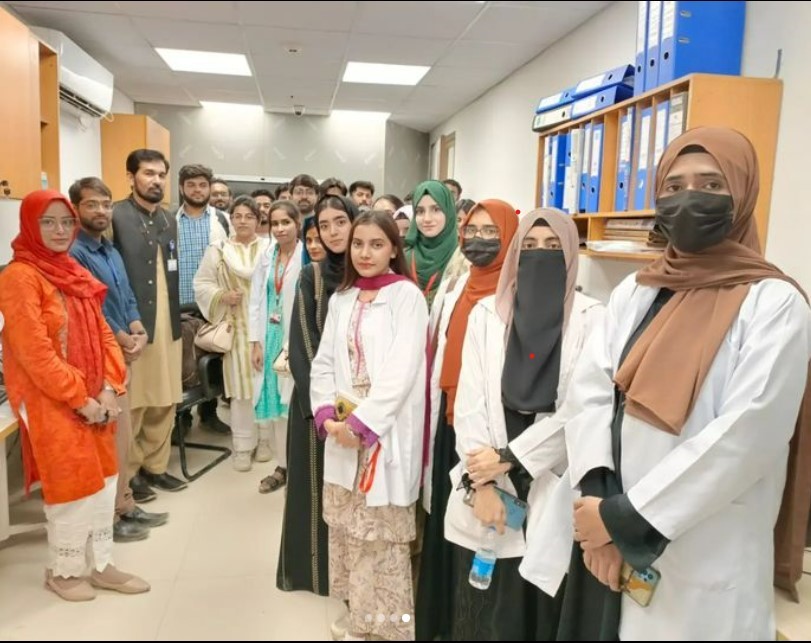
Vision
To make the Pharmacy program at Salim Habib University as the top ranked program recognized both at national and international levels; providing innovative pharmacy education aimed to transform students into focused practitioners, leaders, and researchers by conducting specialized projects with hands-on-experience and equating entrepreneurship skills.
Mission
To provide quality pharmacy education on a par with international standards, integrating critical thinking, problem-solving, experiential learning, and leadership skills to develop students into professionals in the field of drug designing, quality management and pharmaceutical-care based on evidence.
Why to choose SHU ??
The Doctor of Pharmacy (PharmD) program at Salim Habib University Karachi offers compelling reasons to consider:
- Comprehensive Education: SHU's Pharm. D. program aims to produce skilled pharmacists, equipping students to become practitioners, Researchers and Entrepreneures in the field of Pharmacy.
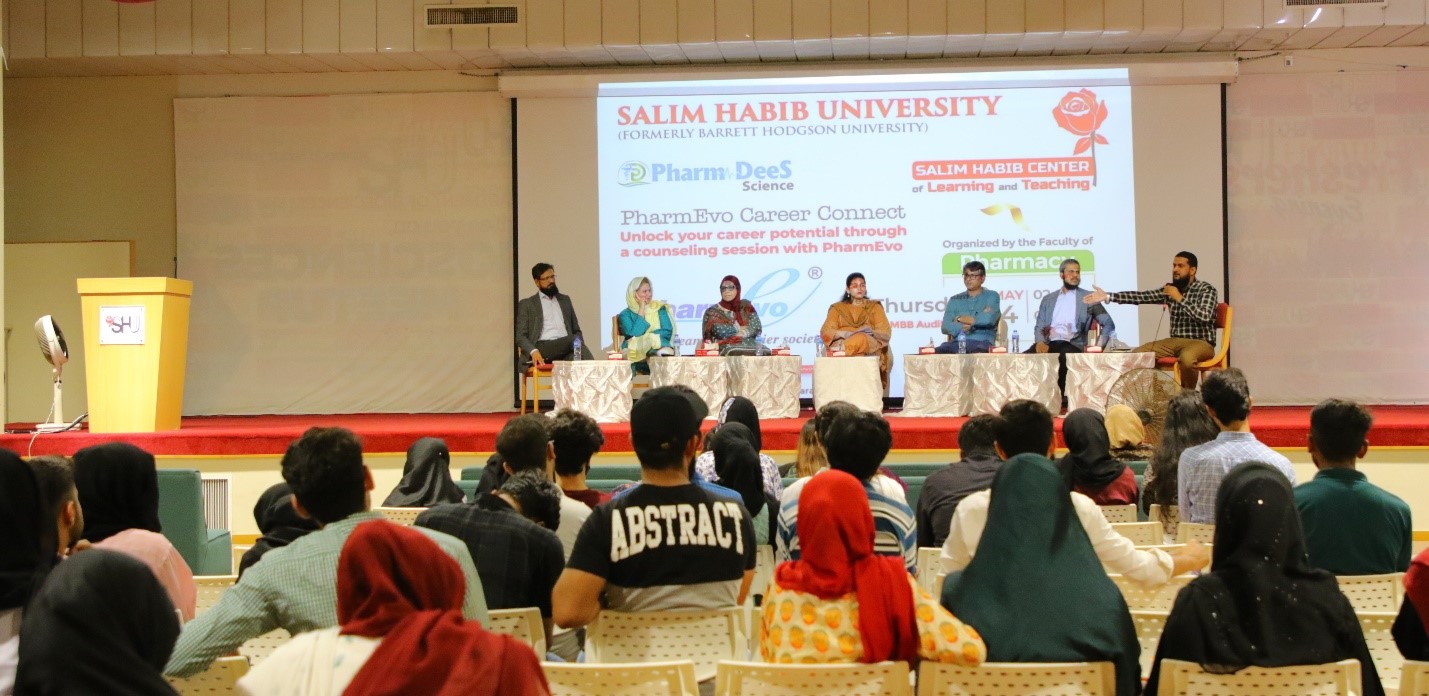
- Curriculum: Our curriculum meets international standards, and students get hands-on learning and experiential rotation in community, hospital, and other settings.
- Modern Facilities and Resources: The university has the latest infrastructure with well-equipped classrooms and labs, fostering an optimal learning environment conducive to academic excellence and professional growth.
- Interdisciplinary Approach: Students benefit from a holistic educational experience, blending rigorous academic curriculum with practical training and extracurricular activities.
- Career Opportunities: Graduates are well-prepared to pursue diverse career paths in pharmacy, leveraging SHU's reputable program, and industry connections.
- Community and Support: SHU emphasizes community engagement and support, ensuring students thrive academically and personally throughout their educational journey along with the bursaries and scholarships.
Doctor of Pharmacy (Pharm. D.) program
Doctor of Pharmacy (Pharm. D.) program is a comprehensive program which is designed to train students for clinical and industrial and interpreneurer Skills.
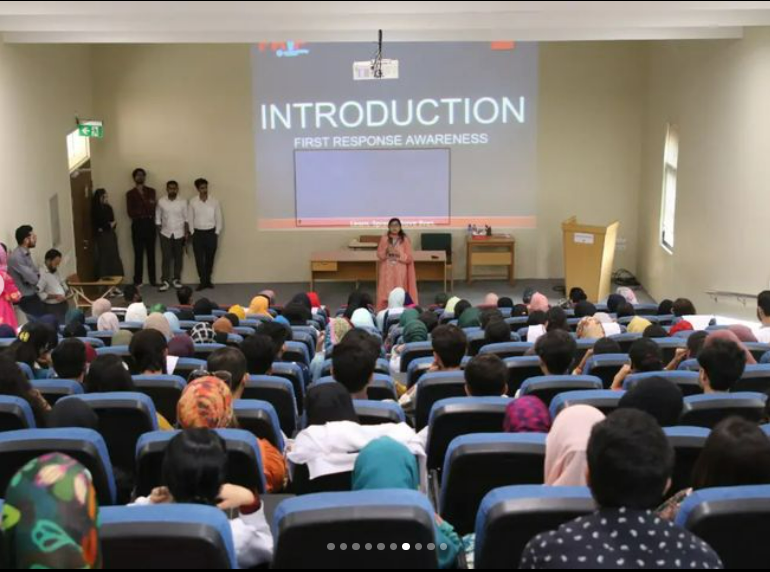
- Demonstrate competence to develop and implement evidence-based programs and protocols.
- Deliver services to the community with commitment, professionalism, and ethical responsibilities.
Career Prospects
1. Industry
Pharmaceutical industry offers a wide range of career prospects for pharmacists, combining their expertise in medication with opportunities for innovation and patient care. Pharmacists in this field can work in various roles, including:
- Research and Development (R&D): Pharmacists contribute to the discovery and development of new drugs, conducting experiments and clinical trials to ensure safety and efficacy.
- Quality Control and Assurance: Ensuring that products meet regulatory standards, pharmacists in these roles are responsible for the quality of medications before they reach the market.
- Regulatory Affairs: Pharmacists in regulatory roles ensure that pharmaceutical products comply with laws and regulations, working closely with government agencies to secure approvals.
- Manufacturing: Involved in the production process, pharmacists oversee manufacturing and packaging of pharmaceutical products, ensuring that they are produced safely and effectively.
- Warehousing and Supply Chain Management: Pharmacists manage the storage, distribution, and logistics of pharmaceutical products, ensuring that medications are handled and delivered under proper conditions to maintain their efficacy and safety.
- Dispensing: Pharmacists ensure accurate dispensing of Active Pharmaceutical Ingredients (APIs) and raw materials within manufacturing settings, ensuring that these substances are handled and distributed according to strict regulatory standards and industry protocols.
- Sales and Marketing: Pharmacists use their knowledge to promote pharmaceutical products, providing information to healthcare professionals and consumers.
- Business Development: Pharmacists involved in business development identify new opportunities for growth within the pharmaceutical industry, including expanding markets, partnerships, and product lines, leveraging their knowledge of the industry to drive business success.
2. Community Pharmacy
- Community Pharmacist: Multifaceted and vital role in the healthcare system. Community pharmacists work at the intersection of healthcare and the community, providing essential services that ensure optimal medication use and promote overall health.
- Dispensing Pharmacist: A dispensing pharmacist plays a critical role in ensuring the safe and effective use of medications. Their responsibilities focus on the accurate preparation and distribution of pharmaceuticals to patients, alongside offering crucial support and guidance.
- Retail Pharmacist: A retail pharmacist, also known as a community pharmacist, plays a vital role in the healthcare system by providing a range of services to the public within a retail pharmacy setting. Their responsibilities extend beyond dispensing medications to include patient care, education, and community health support.
3. Hospital Pharmacy
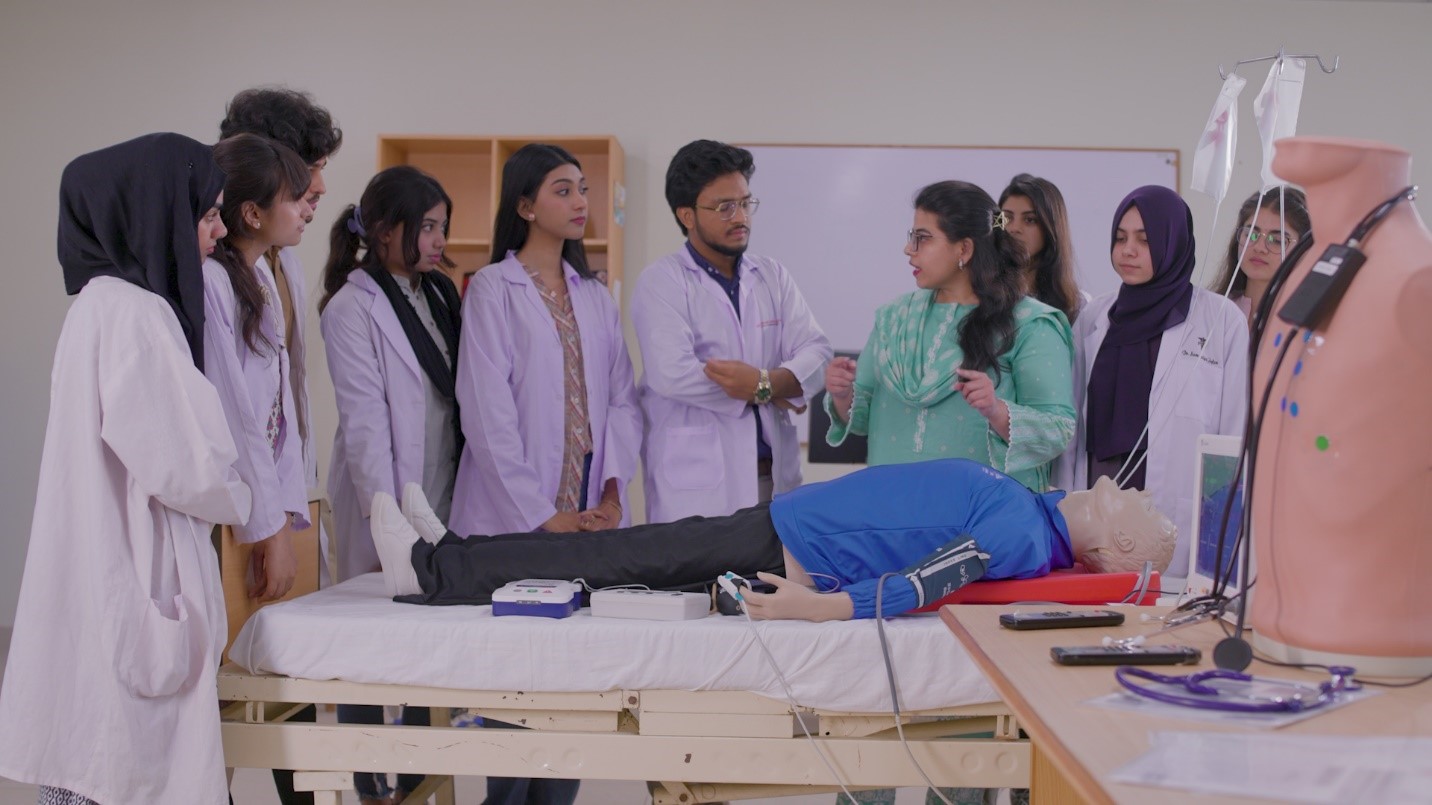
A hospital pharmacist plays a crucial role in the healthcare team within a hospital setting. Their responsibilities are focused on ensuring the safe, effective, and efficient use of medications for hospitalized patients.
- Prescription Review: Review and verify medication orders from healthcare providers for accuracy, appropriateness, and potential interactions.
- Medication Preparation: Prepare and dispense medications, including intravenous (IV) solutions and compounds, ensuring the correct dosage and administration methods.
- Therapeutic Monitoring: Monitor patient responses to medications, including efficacy and adverse effects, and adjust therapy as needed.
4. Academics
Academia offers pharmacists a fulfilling career path focused on education, research, and shaping the future of the profession. Here are some key aspects of pursuing a career in academia as a pharmacist:
- Teaching and Education: Pharmacists in academia educate the next generation of pharmacy professionals. They develop and deliver lectures, design curricula, and mentor students in various aspects of pharmaceutical science and practice.
- Research and Innovation: Academic pharmacists engage in cutting-edge research, contributing to advancements in drug development, healthcare practices, and pharmaceutical science. They often publish their findings in scientific journals, influencing the broader scientific community.
- Preceptorship: Many academic pharmacists serve as preceptors for clinical training, guiding and teaching undergraduate students in clinical settings. This dual role allows them to mentor and educate future pharmacists, ensuring students gain hands-on experience and practical skills essential for their professional development.
- Curriculum Development: Pharmacists in academia play a critical role in designing and updating educational programs, ensuring that the curriculum remains relevant and prepares students for the evolving landscape of pharmacy practice.
- Leadership and Administration: Academic pharmacists may take on leadership roles within their institutions, such as department chairs or deans, overseeing the development of academic programs and managing faculty and resources.
- Professional Development: Academia provides opportunities for continuous learning and professional growth. Pharmacists can pursue advanced degrees such as M.Phil., Ph.D., or M.S., attend conferences, and participate in professional organizations to stay at the forefront of their field.
- Community Engagement: Academic pharmacists often engage with the community through outreach programs, health education initiatives, and partnerships with healthcare organizations, contributing to public health and awareness.
5. Regulatory/Government Jobs
- DRAP (Drug Regulatory Authority of Pakistan): Regulates drug safety, quality, registration, and marketing of pharmaceuticals in Pakistan.
- DTL (Drug Testing Laboratory): Tests and certifies drug quality and safety.
- Drug Inspector: Ensures compliance with drug laws through inspections.
- Procurement Officer: Acquires quality pharmaceuticals for government healthcare.
- Anti-Narcotic Office: Combats illegal narcotics production and distribution.
- Various Other Government Health Sectors: Focus on public health, policy, and administration.
6. Entrepreneurship
- Pharmacy/Medical Store: Dispenses medications and provides healthcare products to the community.
- Medicine Distribution: Oversees the supply chain and delivery of pharmaceuticals to pharmacies and healthcare facilities.
- Warehouse: Stores and manages pharmaceutical inventory, ensuring proper handling and distribution.
- Retail: Provides pharmaceutical services and patient counseling in community pharmacies abroad.
Internship Opportunities as
- Hospital and Clinical Pharmacist
- Industrial Pharmacist
Entry Requirements
- Have 60% marks in HSC (Pre-Medical) or 60% marks in A-level or equivalent qualification
- Qualify the Aptitude Test and Interview
Scheme of Study (Semester Wise)
- Duration: 5 Years
- Semesters: 10
- Credit Hours: 206
1st Year |
||
Semester - Ⅰ |
||
| Course Code | Course Title | Credit Hours |
| ENG 111 | English - A (Functional English) | 2 |
| PHM 101 | Anatomy and Histology | 3 |
| PHM 101(Lab) | Anatomy and Histology | 1 |
| PHM 103 | Physiology - A | 3 |
| PHM 103 Lab) | Physiology - A | 1 |
| PHM 105 | Pharmaceutics - IA (Physical Pharmacy) | 3 |
| PHM 105 (Lab) | Pharmaceutics - IA (Physical Pharmacy) | 1 |
| PHM 107 | Pharmaceutical Chemistry - IA (Organic) | 2 |
| PHM 107 (Lab) | Pharmaceutical Chemistry - IA (Organic) | 1 |
| PHM 109 | Pharmaceutical Chemistry - IIA (Biochemistry) | 3 |
| PHM 109 (Lab) | Pharmaceutical Chemistry - IIA (Biochemistry) | 1 |
| Total Credit Hours | 21 | |
Semester - ⅠⅠ |
||
| Course Code | Course Title | Credit Hours |
| ENG 112 | English - B (Communication & Writing skills) | 4 |
| PHM 102 | Physiology - B | 3 |
| PHM 102 (Lab) | Physiology - B | 1 |
| PHM 104 | Pharmaceutics - IB (Physical Pharmacy) | 3 |
| PHM 104 (Lab) | Pharmaceutics - IB (Physical Pharmacy) | 1 |
| PHM 106 | Pharmaceutical Chemistry - IB (Organic) | 2 |
| PHM 106 (Lab) | Pharmaceutical Chemistry - IB (Organic) | 1 |
| PHM 108 | Pharmaceutical Chemistry - IIB (Biochemistry) | 3 |
| PHM 108 (Lab) | Pharmaceutical Chemistry - IIB (Biochemistry) | 1 |
| PHM 110 | Pharmacy Practice - IA (Pharmaceutical Mathematics) | 3 |
| Total Credit Hours | 22 | |
2nd Year |
||
Semester - ⅠⅠⅠ |
||
| Course Code | Course Title | Credit Hours |
| IST 101 | Islamic Studies | 2 |
| PHM201 | Pharmaceutics-IIA (Dosage Forms, Science and Calculations) | 3 |
| PHM 201 (Lab) | Pharmaceutics-IIA (Dosage Forms, Science and Calculations) | 1 |
| PHM 203 | Pathology | 3 |
| PHM 203 (Lab) | Pathology | 1 |
| PHM 205 | Pharmaceutics-IIIA (Pharmaceutical Microbiology) | 3 |
| PHM 205 (Lab) | Pharmaceutics-IIIA (Pharmaceutical Microbiology) | 1 |
| PHM 207 | Pharmacology and Therapeutics - IA | 3 |
| PHM 207 (Lab) | Pharmacology and Therapeutics - IA | 1 |
| PHM 209 | Pharmacognosy - IA Basic | 3 |
| PHM 209 (Lab) | Pharmacognosy - IA Basic | 1 |
| PHM 211 (Lab) | Pharmacy Practice –(Introductory Pharmacy Practice experience) | 1 |
| Total Credit Hours | 23 | |
Semester - ⅠⅤ |
||
| Course Code | Course Title | Credit Hours |
| PST101 | Pakistan Studies | 2 |
| PHM 202 | Pharmaceutics - IIB (Dosage Forms science & calculations) | 3 |
| PHM 202 (Lab) | Pharmaceutics - IIB (Dosage Forms science & calculations) | 1 |
| PHM 204 | Pharmaceutics - IIIB (Pharmaceutical Immunology) | 3 |
| PHM 204 (Lab) | Pharmaceutics - IIIB (Pharmaceutical Immunology) | 1 |
| PHM 206 | Pharmacology and Therapeutics - IB | 3 |
| PHM 206 (Lab) | Pharmacology and Therapeutics - IB | 1 |
| PHM 208 | Pharmacognosy - IB (Basic) | 3 |
| PHM 208 (Lab) | Pharmacognosy - IB (Basic) | 1 |
| PHM 210 | Pharmacy Practice - IB (Bio-statistics) | 3 |
| PHM 212 (Lab) | Pharmacy Practice – (Introductory Pharmacy Practice Experience) | 1 |
| Total Credit Hours | 22 | |
3rd Year |
||
Semester - Ⅴ |
||
| Course Code | Course Title | Credit Hours |
| PHM 301 | Pharmacy Practice - IIA (Dispensing Pharmacy) | 3 |
| PHM 301 (Lab) | Pharmacy Practice - IIA (Dispensing Pharmacy) | 1 |
| PHM 303 | Pharmacy Practice - IVA ( Hospital Pharmacy) | 2 |
| PHM 303 (Lab) | Pharmacy Practice - IVA ( Hospital Pharmacy) | 1 |
| PHM 305 | Pharmacy Practice - VA (Clinical Pharmacy-I) | 3 |
| PHM 405 (Lab) | Pharmacy Practice - VA (Clinical Pharmacy-I) | 1 |
| PHM 307 | Pharmacology and Therapeutics-IIA | 3 |
| PHM 307 (Lab) | Pharmacology and Therapeutics-IIA | 1 |
| PHM 309 | Pharmacognosy - IIA (Advanced) | 3 |
| PHM 309 (Lab) | Pharmacognosy - IIA (Advanced) | 1 |
| Total Credit Hours | 19 | |
Semester - ⅤⅠ |
||
| Course Code | Course Title | Credit Hours |
| PHM 302 | Pharmacy Practice - IIB (Community Pharmacy, Social and administrative Pharmacy) | 3 |
| PHM304 | Pharmacy Practice - IVB (Hospital Pharmacy) | 2 |
| PHM 304 (Lab) | Pharmacy Practice – IVB (Hospital Pharmacy) | 1 |
| PHM 306 | Pharmacy Practice - VB (Clinical Pharmacy) | 3 |
| PHM 306 (Lab.) | Pharmacy Practice - VB (Clinical Pharmacy) | 1 |
| PHM 308 | Pharmacology and Therapeutics - IIB | 3 |
| PHM 308 (Lab) | Pharmacology and Therapeutics - IIB | 1 |
| PHM 310 | Pharmacognosy - IIB (Advanced Pharmacognosy and CAM) | 3 |
| PHM 310 (Lab) | Pharmacognosy - IIB (Advanced Pharmacognosy and CAM) | 1 |
| PHM 312 | Pharmacy Practice - III (Computer and its Applications in Pharmacy) | 3 |
| PHM 312 (Lab) | Pharmacy Practice - III (Computer and its Applications in Pharmacy) | 1 |
| Total Credit Hours | 22 | |
4th Year |
||
Semester - ⅤⅠⅠ |
||
| Course Code | Course Title | Credit Hours |
| PHM 401 | Pharmaceutical Chemistry - IIIA) (Pharmaceutical Analysis) | 3 |
| PHM 401 (Lab) | Pharmaceutical Chemistry - IIIA) (Pharmaceutical Analysis) | 1 |
| PHM 403 | Pharmacy Practice-VIA (Advanced Clinical Pharmacy II) | 3 |
| PHM 403 (Lab) | Pharmacy Practice-VIA (Advanced Clinical Pharmacy II) | 1 |
| PHM 405 | Pharmaceutics-IVA (Industrial Pharmacy) | 3 |
| PHM 405 (Lab) | Pharmaceutics-IVA (Industrial Pharmacy) | 1 |
| PHM 407 | Pharmaceutics-VA (Biopharmaceutics & Pharmacokinetics) | 3 |
| PHM 407 (Lab) | Pharmaceutics-VA (Biopharmaceutics & Pharmacokinetics) | 1 |
| PHM 409 | Pharmaceutics-VIA (Pharmaceutical Quality Management) | 3 |
| PHM 409 (Lab) | Pharmaceutics-VIA (Pharmaceutical Quality Management) | 1 |
| Total Credit Hours | 20 | |
Semester - ⅤⅠⅠⅠ |
||
| Course Code | Course Title | Credit Hours |
| PHM 402 | Pharmaceutical Chemistry - IIIB (Pharmaceutical Analysis) | 3 |
| PHM 402 (Lab) | Pharmaceutical Chemistry - IIIB (Pharmaceutical Analysis) | 1 |
| P1HM 404 | Pharmacy Practice - VIB (Advanced Clinical Pharmacy-II) | 3 |
| PH3M 404 (Lab) | Pharmacy Practice-VIB (Advanced Clinical Pharmacy-II) | 1 |
| PHM 406 | Pharmaceutics-IVB (Industrial Pharmacy) | 3 |
| PHM 406 (Lab) | Pharmaceutics-IVB (Industrial Pharmacy) | 1 |
| PHM 408 | Pharmaceutics-VB (Biopharmaceutics & Pharmacokinetics) | 3 |
| PHM 408 (Lab) | Pharmaceutics-VB (Biopharmaceutics & Pharmacokinetics) | 1 |
| PHM 410 | Pharmaceutics-VIB (Pharmaceutical Quality Management) | 3 |
| PHM 410 (Lab) | Pharmaceutics-VIB (Pharmaceutical Quality Management) | 1 |
| Total Credit Hours | 20 | |
5th Year |
||
Semester - Ⅸ |
||
| Course Code | Course Title | Credit Hours |
| PHM 501 | Pharmaceutics-VIIA (Pharmaceutical Technology) | 3 |
| PHM 501 (Lab) | Pharmaceutics-VIIA (Pharmaceutical Technology) | 1 |
| PHM 503 | Pharmacy Practice-VIIA (Forensic Pharmacy) | 3 |
| PHM 505 | Pharmacy Practice-VIIIA (Pharmaceutical Management & Marketing) | 3 |
| PHM 507 | Pharmaceutical Chemistry-IVA (Medicinal Chemistry) | 3 |
| PHM 507 (Lab) | Pharmaceutical Chemistry-IVA (Medicinal Chemistry) | 1 |
| PHM 509 | Pharmacy Practice – XII A (Advanced Clinical Pharmacy III) | 2 |
| PHM 511 | Pharmacy Practice - XI A (Advanced Pharmacy Practice Experience) | 2 |
| PHM 513 | Pharmacy Practice - IX (Research Methodology) | 1 |
| Total Credit Hours | 19 | |
Semester - Ⅹ |
||
| Course Code | Course Title | Credit Hours |
| PHM 502 | Pharmaceutics - VIIB (Pharmaceutical Technology) | 3 |
| PHM 502 (Lab) | Pharmaceutics - VIIB (Pharmaceutical Technology) | 1 |
| PHM 504 | Pharmacy Practice - VIIB (Forensic Pharmacy) | 3 |
| PHM 506 | Pharmacy Practice – VIIIB (Pharmaceutical Management and Entrepreneurship) | 3 |
| PHM 508 | Pharmaceutical Chemistry- IVB (Medicinal Chemistry) | 3 |
| PHM 508 (Lab) | Pharmaceutical Chemistry- IVB (Medicinal Chemistry) | 1 |
| PHM 510 | Pharmacy Practice – XII B (Advanced Clinical Pharmacy III) | 2 |
| PHM 512 | Pharmacy Practice – XI B (Advance Pharmacy Practice Experience) | 2 |
| Total Credit Hours | 18 | |
Master of Philosophy (M. Phil.) program in Pharmacology
The Department of Basic Medical Sciences (BMS) at Faculty of Pharmacy, Salim Habib University. The M. Phil. Program is comprised of a body of coursework, fortified by a research project and thesis. Students participating in laboratory-based research will have opportunities to receive training in relevant laboratory techniques.
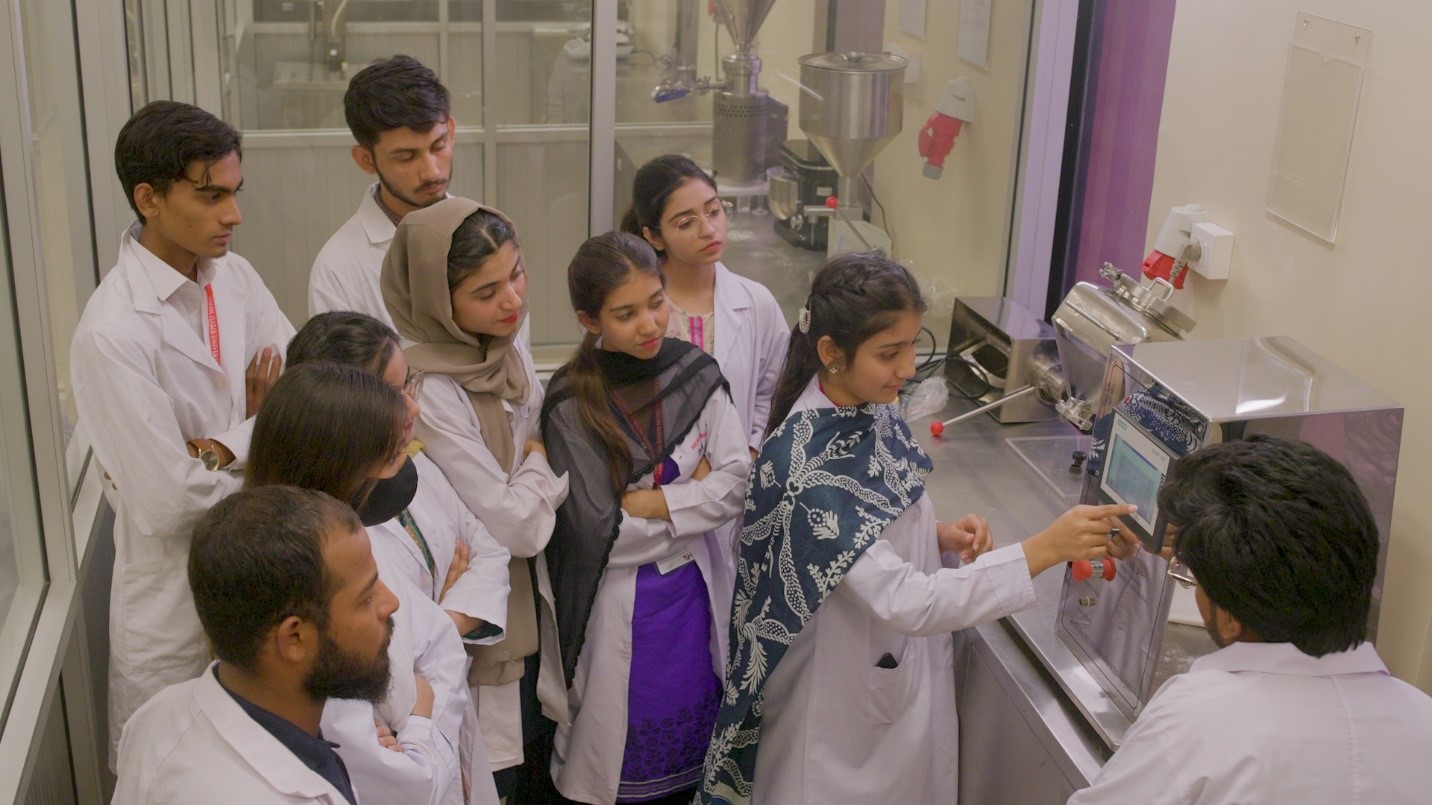
M. Phil. program trains students to integrate knowledge and formulate judgments to ensure a highly specialized education and its application in problem solving. This will develop the candidate for the employment requiring decision-making in complex and unpredictable situations and nurture independent learning ability required for continuing professional development.
In addition, highly skilled faculty members are the part of the team. These faculty members have vast experience of working at well-known national and international institutions.
Goals
- To acquire new expertise in pharmacology and toxicology through exclusive projects
- To apply the basic research tools into clinical scenarios for exploring evidence-based solutions.
- To strengthen the experimental and clinical pharmacology of common ailments prevalent in the community.
Prospects
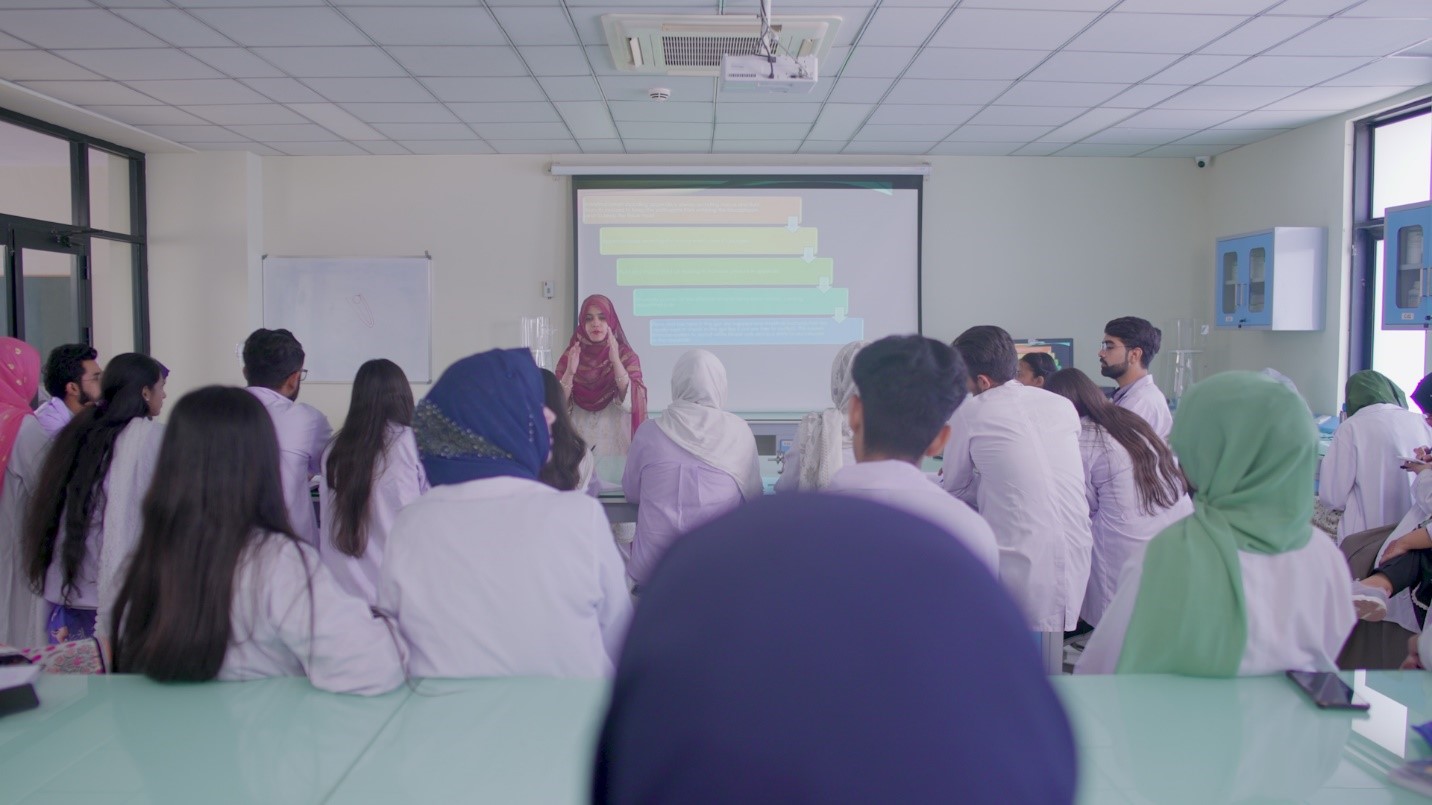
The M. Phil. Pharmacology program is designed to produce competent, confident and productive pharmacologists who can continue their passion for research and learning onto PhD training or have a successful career in academia and industry straightaway.
The program aims to educate graduate students with broad-based integrated concepts of basic health sciences coupled with pharmacological advancements in the field of research-based education, to integrate the desired attributes of knowledge, skills and attitude as outcomes.
The program will enable them to acquire better future prospects and employments options in pharmaceutical industries, research laboratories, as well as become part of graduate academic institutions, all of which have huge career prospects. This will also develop their entrepreneurial skills, which coupled with their drug development skills will enable them to launch their own drug product and get it patented. The evidence-based studies will enable them to assess the need of intervention in healthcare and community settings, whereby, pharmacists and researchers could eventually play a significant role, as well as, identify their entrepreneurial forte.
Program Objectives
- Provide an understanding of modern and integrated concepts in basic and applied pharmacology by recognizing and applying subject-specific theories, paradigms, and concepts.
- Develop skills to apply subject knowledge and understanding to address familiar and unfamiliar problems.
- Recognize the moral and ethical issues of investigations and appreciate the need for ethical standards and professional codes of conduct.
- Develop the ability to read and use appropriate literature with a full and critical understanding, while addressing such questions as content, context, aims, objectives, quality of information, and its interpretation and application.
- Develop the ability to employ a variety of methods of study in investigating, recording, analyzing and reporting research findings.
- To enable students to understand modern concepts of health and disease, opportunities and dilemmas and apply knowledge to impact changes that can positively impact clinical research.
Eligiblity Criteria
- BPharm/PharmD, MBBS or equivalent qualification from HEC & PCP recognized institutions with a minimum of 2.5 cGPA/60% marks.
- Test/ interview as per university admission policy.
- Any other conditions as prescribed by the HEC and PCP for the degree program
Duration
The program shall be completed in 2 to 4 years.
Coursework
The course work of 24 credit hours in the first year is required to be completed with a minimum of 3.0 CGPA on a scale of 4.0.Scheme of Study (Semester Wise)
1st Year |
|||||
Semester - Ⅰ |
|||||
| Course Code | Course Title | Credit Hours | |||
| PHM 701 | Advanced Pharmacology I (Major I) | 3 | |||
| PHM 703 | Biostatistics in Healthcare (CORE I) | 3 | |||
| PHM 705 | Pharmacological Research and Bioethics (Major II) | 3 | |||
| PHM ___ | Elective I or III | 3 | |||
| JC-1 | Journal Club | NC | |||
| Total Credit Hours | 12 | ||||
Semester - ⅠⅠ |
|||||
| Course Code | Course Title | Credit Hours | |||
| PHM 702 | Advance Pharmacology II (Major II) | 3 | |||
| PHM 704 | Pharmacoepidemiology (CORE II) | 3 | |||
| PHM 706 | Molecular Medicine and Medical Genetics (CORE III) | 3 | |||
| PHM ___ | Elective II or IV | 3 | |||
| JC-1 | Journal Club | NC | |||
| Total Credit Hours | 12 | ||||
Core Courses
| Sr. No | Course Code | Course Title | Credit Hours |
|---|---|---|---|
| 1 | PHM 703 | Biostatistics in Healthcare (CORE I) | 3 |
| 2 | PHM 704 | Pharmacoepidemiology (CORE II) | 3 |
| 3 | PHM 706 | Molecular Medicine and Medical Genetics (CORE III) | 3 |
Major Courses
| Sr. No | Course Code | Course Title | Credit Hours |
|---|---|---|---|
| 1 | PHM 701 | Advanced Pharmacology I (Major I) | 3 |
| 2 | PHM 702 | Advance Pharmacology II (Major III) | 3 |
| 3 | PHM 705 | Pharmacological Research and Bioethics (Major II) | 3 |
Elective Courses
| Sr. No | Course Code | Course Title | Credit Hours |
|---|---|---|---|
| 1 | PHM 707 | Endocrine & Gastrointestinal Pharmacology (Elective I) | 3 |
| 2 | PHM 708 | Clinical Toxicology (Elective II) | 3 |
| 3 | PHM 709 | Chemotherapy (Elective III) | 3 |
| 4 | PHM 710 | Clinical Pharmacology (Elective IV) | 3 |
Doctor of Philosophy (Ph. D.) program in Pharmacology
The Ph. D. in Pharmacology program int The Department of Basic Medical Sciences (BMS) at Faculty of Pharmacy, Salim Habib University offers training and provide diverse research opportunities with a flexible program of study, based on individual needs and interests. The prospective postgraduates acquire expertise in the discipline and the core concepts and techniques required for basic and clinical research.
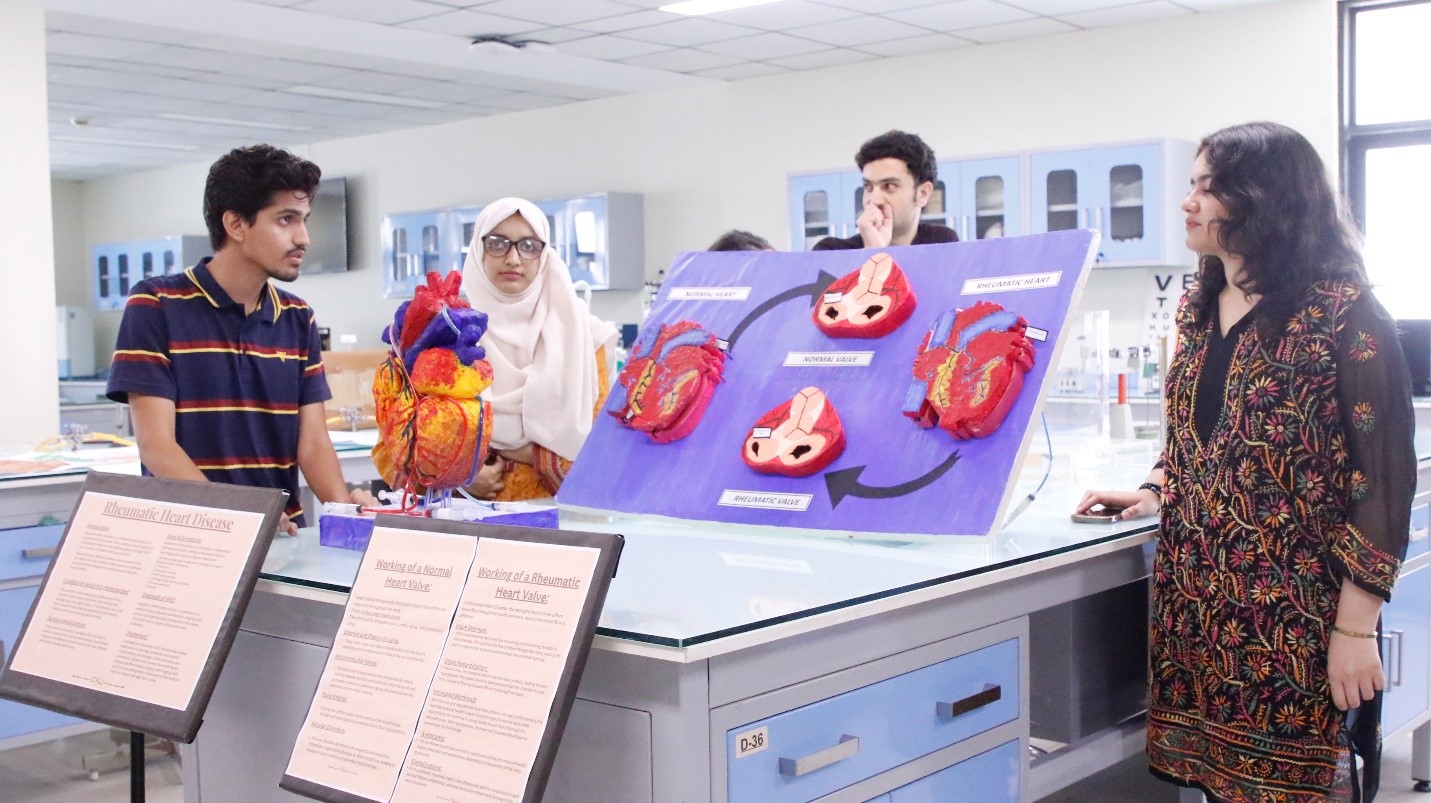
Goals
The goals of the PhD (Pharmacology) program include:
- To expose the scholars to the latest conceptual and technical developments in pharmacology and related biomedical sciences
- To mentor the scholars in the development of their critical thinking, problem solving, and communication skills, as well as technical proficiency in a laboratory setting by conducting the research based projects with the relevant industry.
- To help scholars identify and make progress toward their personal career goals
Career Prospects
- Academia and research
- Hospital-based research and drug experts
- Pharmaceutical industry
- Research and development for pharmaceutical companies
- Drug regulation
- Government agencies
- Entrepreneurship
Eligibility Criteria
Admission Criteria
- MPhil from HEC & PCP recognized institutions
- Minimum 3.0 CGPA in the semester system
- Test/interview as per university admission policy
- Any other conditions as prescribed by the HEC and PCP for the degree program
Admission Test
- Subject Test: A subject test conducted by the National Testing Service (NTS) or ETS, USA in the chosen area of specialization must be cleared prior to admission into the PhD program.
- GAT Subject Test: For the GAT Subject test (http://www.nts.org.pk/GAT/GATSubject.asp), a minimum of 60% marks is required.
- GRE Subject Test: For the GRE Subject Test, a minimum score of 60% is required.
- Alternative Test: If the test is not available in the NTS subject list, a university committee consisting of at least three PhD faculty members in the subject area will conduct the test. The qualifying score for this test will be 70%, equivalent to the GRE Subject Test standard.
Program Requirements
- Requierements of Course Work: Completion of 18 credit hours of coursework, preferably within the first year, followed by a comprehensive examination to grant candidacy as a PhD researcher.
- Foreign Expert Evaluation: The PhD dissertation must be evaluated by at least two PhD experts from technologically or academically advanced foreign countries, in addition to local committee members.
- Open Defense: An open defense of the dissertation is an essential part of the PhD program following a positive evaluation.
- Research Paper: Acceptance or publication of at least one research paper in an HEC-approved X-category journal is required for the award of the PhD degree.
- Plagiarism Test: A plagiarism test must be conducted on the dissertation before its submission to two foreign experts.
- Copy of PhD Dissertation to HEC: A copy of the PhD dissertation (both in hard and soft copy) must be submitted to HEC for inclusion in the PhD Country Directory and for future attestation of the PhD degree by the HEC.
- Duration - 2 to 5 Years: Failure to meet this timeline will necessitate fresh admission. Thesis submission requirements and examination procedures are set out as per SHU policy.
Program Learning Objectives
Doctoral scholars enrolled in the program will be able to:
- Demonstrate deep methodological skills and an understanding of contemporary research in their respective areas of expertise, and implement innovative research practices under the guidance of their faculty advisor and in concert with their research team.
- Apply contemporary research in their respective areas to industry contexts and engage in innovative practices pertinent to pharmacology, toxicology, and their area of emphasis in diverse settings.
- Lead research teams in their respective areas of emphasis by mentoring and providing teaching assistance to PharmD students, Master’s students, and fellow PhD students who are less advanced in their doctoral programs.
- Launch an independent research agenda in their respective area of emphasis under the guidance of their faculty advisor.
- Complete and orally defend an acceptable dissertation based on original investigation and supervised by their dissertation committee, demonstrating mastery of an area of emphasis within pharmacology and toxicology, capacity for independent research, and a scholarly contribution.
Scheme of Study (Semester Wise)
1st Year |
|||||
Semester - Ⅰ |
|||||
| Course Code | Course Title | Credit Hours | |||
| PHM 801 | Manuscript and Grant Writing (CORE I) | 2 | |||
| PHM 803 | Application of Statistical Methods in Pharmaceutical Sciences (CORE 2) | 2 | |||
| PHM 805 | Advance Pharmacology I (Major I) | 3 | |||
| PHM 807 | Contemporary Pharmacology | 2 | |||
| Total Credit Hours | 10 | ||||
Semester - ⅠⅠ |
|||||
| Course Code | Course Title | Credit Hours | |||
| PHM 802 | Techniques in Experimental and Molecular Pharmacology | 2 | |||
| PHM 804 | Advance Pharmacology II (Major II) | 3 | |||
| PHM 806 | Elective | 2 | |||
| PHM 806 | Teaching Internship (CORE III) | 2 | |||
| Total Credit Hours | 9 | ||||
2nd Year |
|||||
Semester - Ⅲ & Onwards |
|||||
| Course Code | Course Title | Credit Hours | |||
| - | Synopsis, Research Work and Thesis | 6 | |||
Core Courses
| Course Code | Course Title | Credit Hours |
|---|---|---|
| PHM 801 | Manuscript & Grant writing (CORE I) | 2 |
| PHM 803 | Application of Statistical Methods in Pharmaceutical Sciences (CORE II) | 2 |
| PHM 806 | Teaching Internship (CORE III) | 2 |
Major Courses
| Course Code | Course Title | Credit Hours |
|---|---|---|
| PHM 801 | Advanced Pharmacology I (Major I) | 3 |
| PHM 802 | Advance Pharmacology II (Major III) | 3 |
| PHM 805 | Pharmacological Research and Bioethics (Major II) | 3 |
Elective Courses
| Course Code | Course Title | Credit Hours |
|---|---|---|
| PHM 810 | Endocrine & Gastrointestinal Pharmacology | 2+0 |
| PHM 811 | Enzyme and Neuropeptide Pharmacology | 2+0 |
| PHM 812 | Clinical Pharmacology | 2+0 |
| PHM 813 | Drug discovery, design and development | 1+1 |
| PHM 814 | Ethnopharmacology | 1+1 |
| PHM 815 | Medication therapy Management | 2+0 |
| PHM 816 | Bioinformatics | 1+1 |
Classrooms and Laboratories
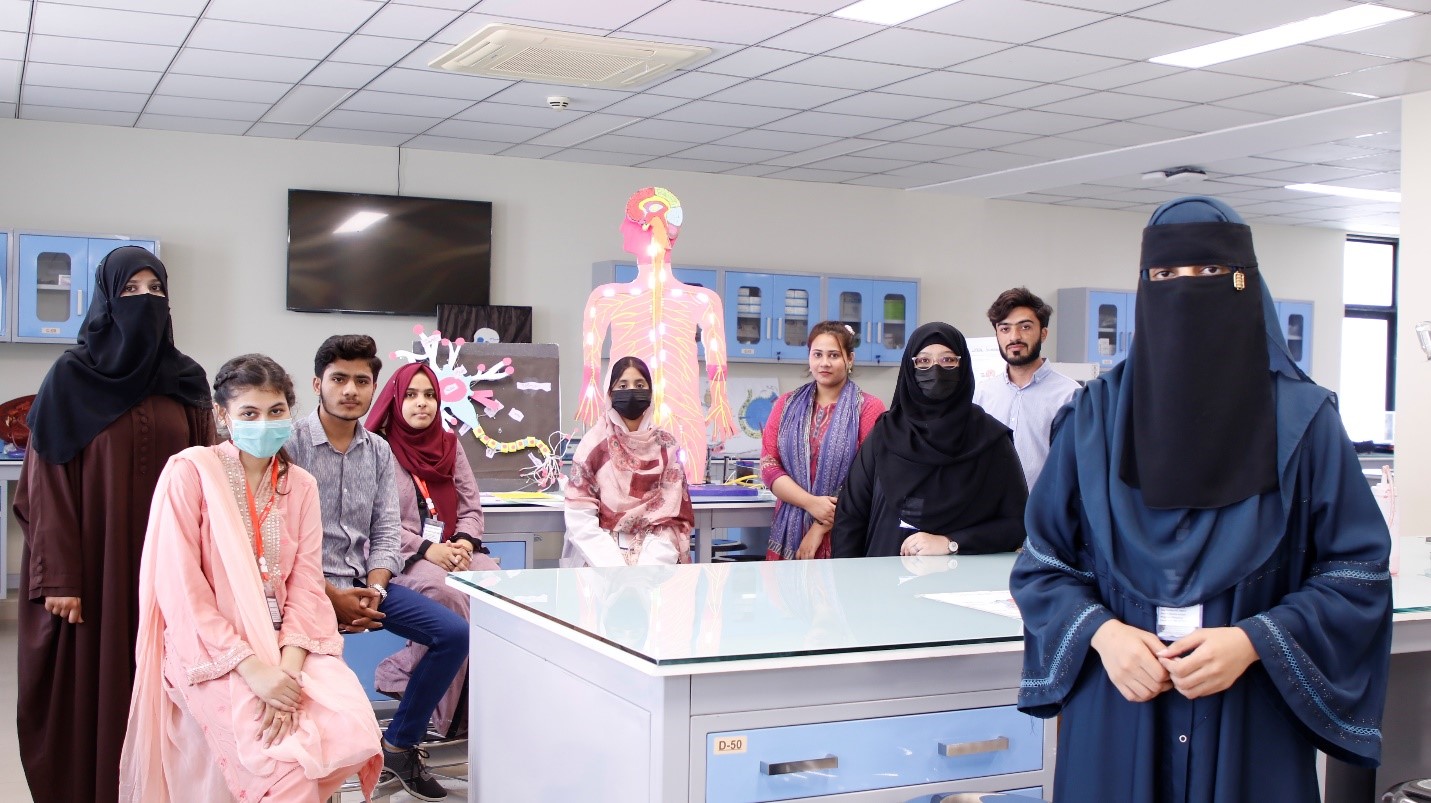
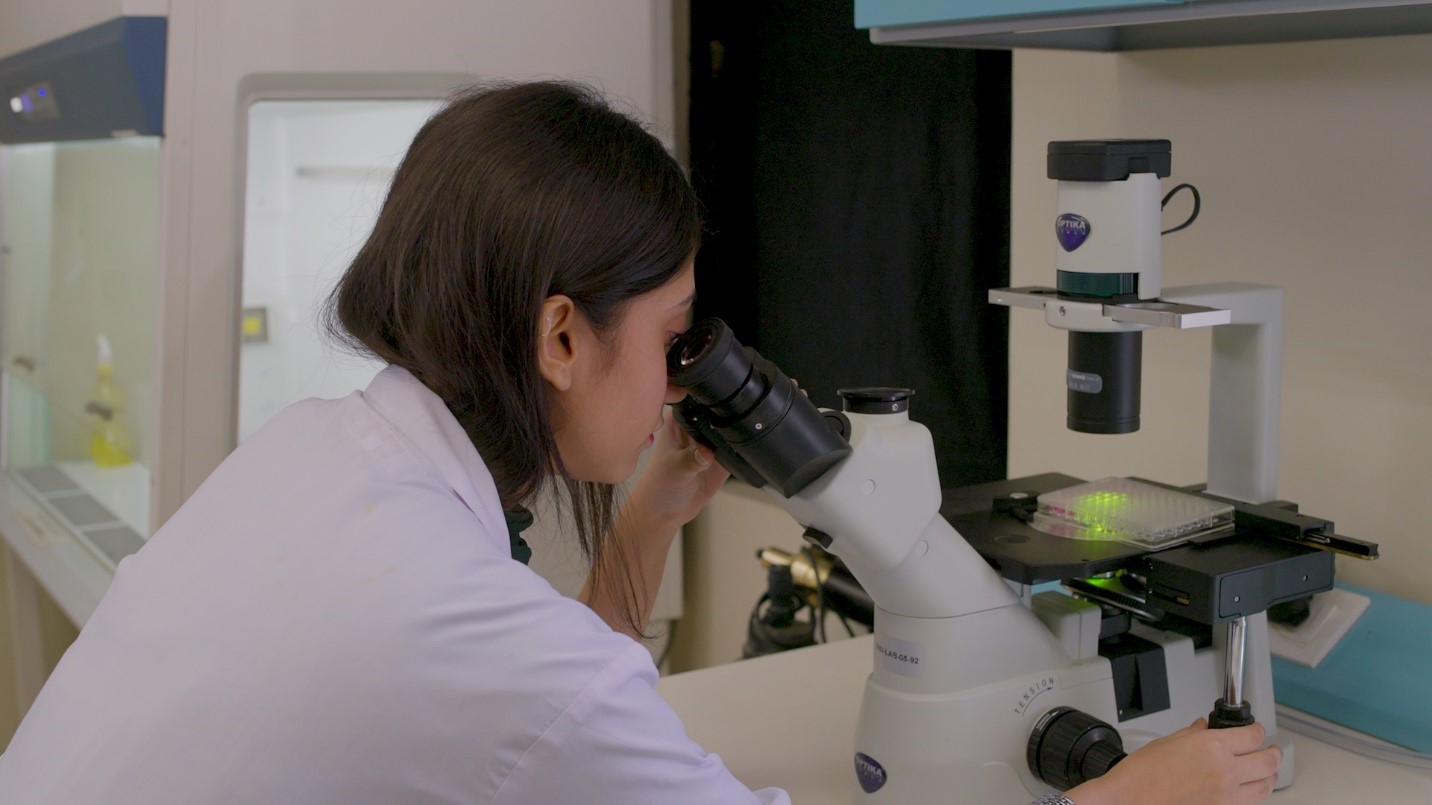
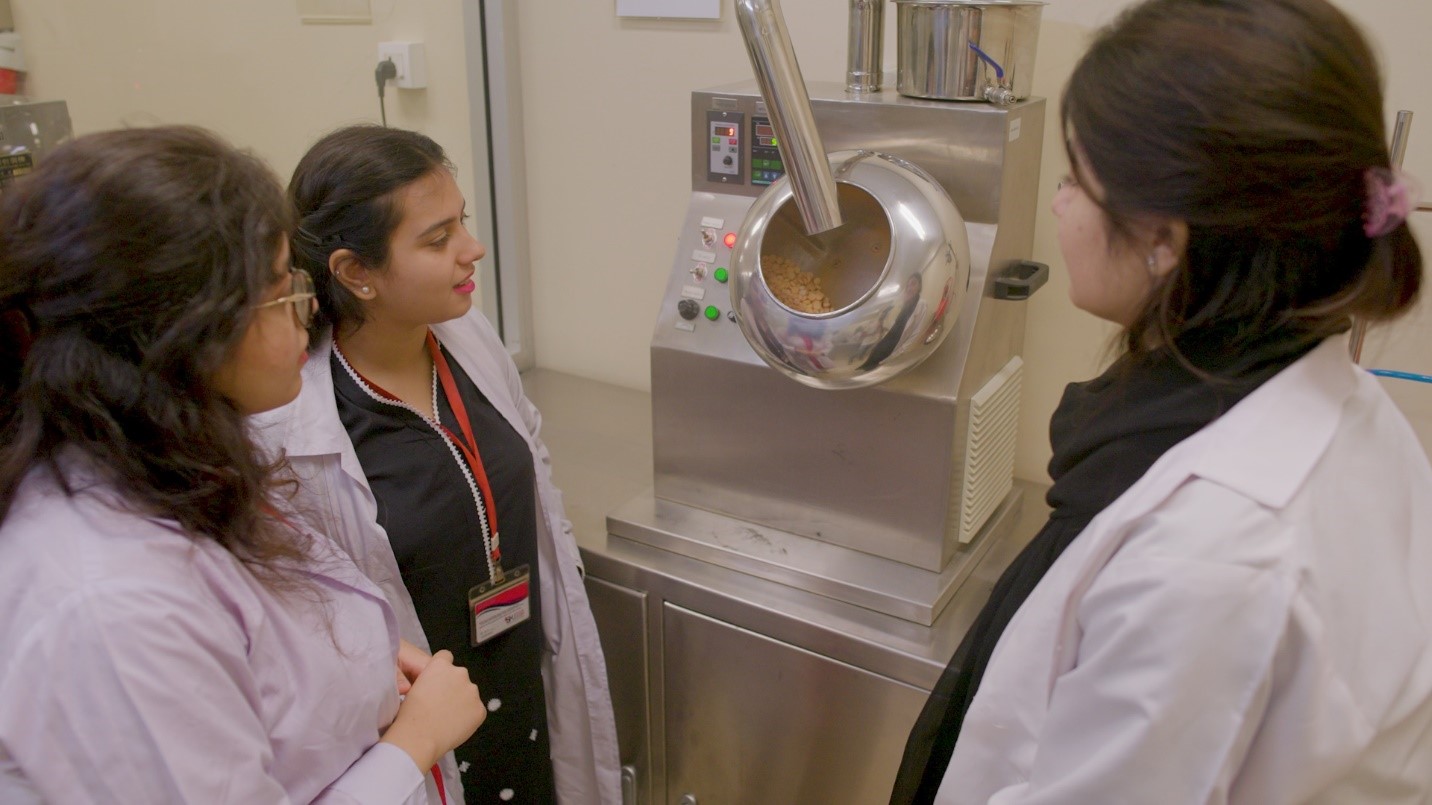
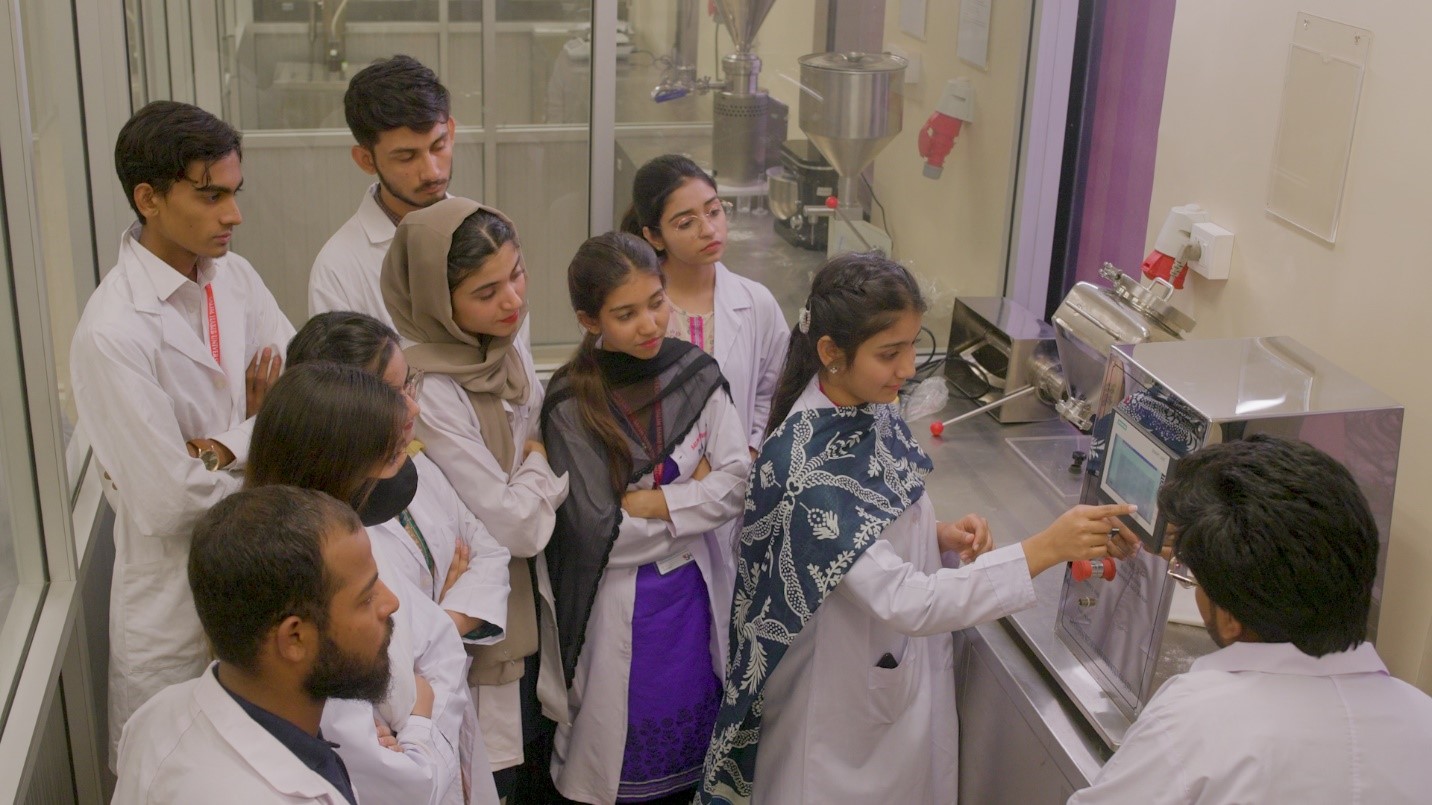
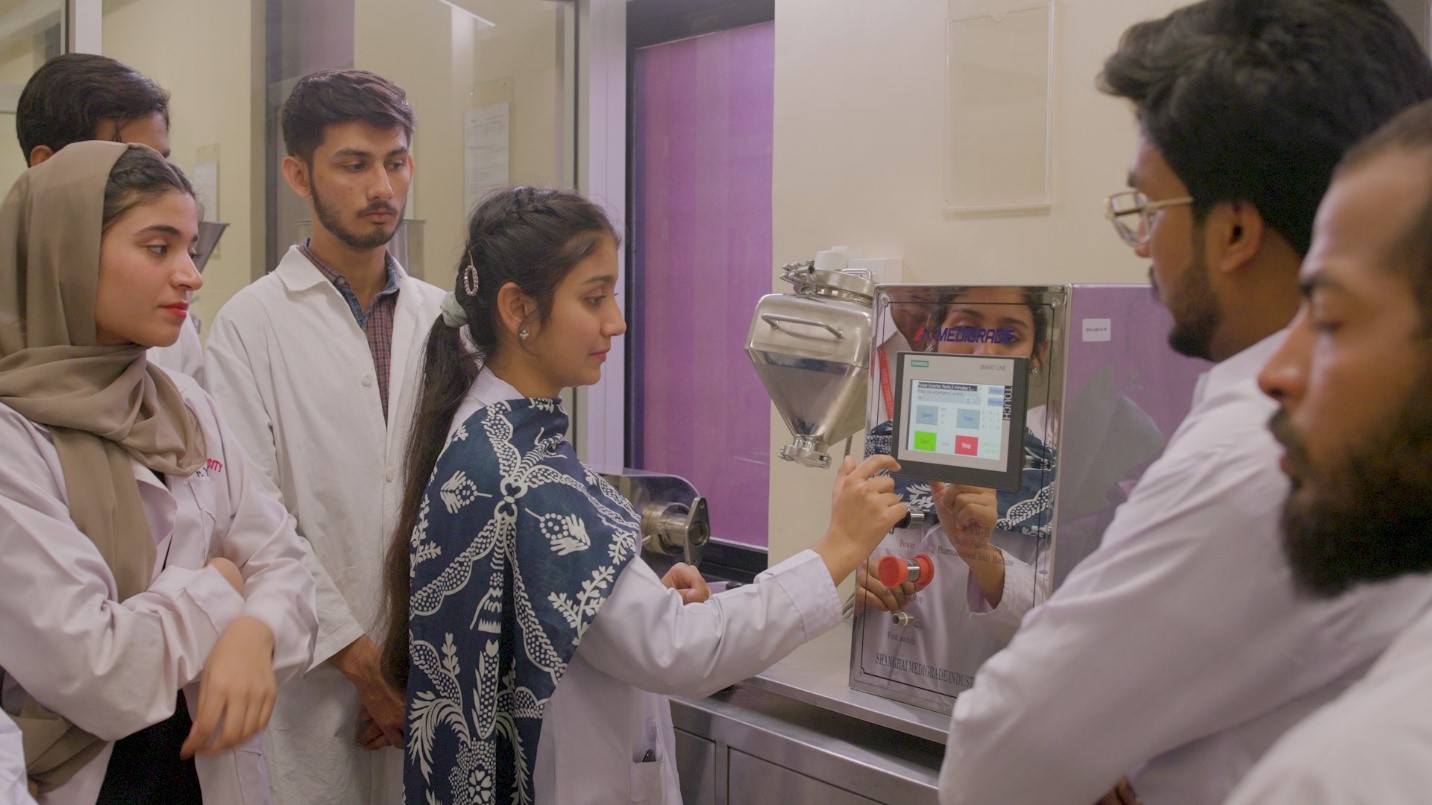
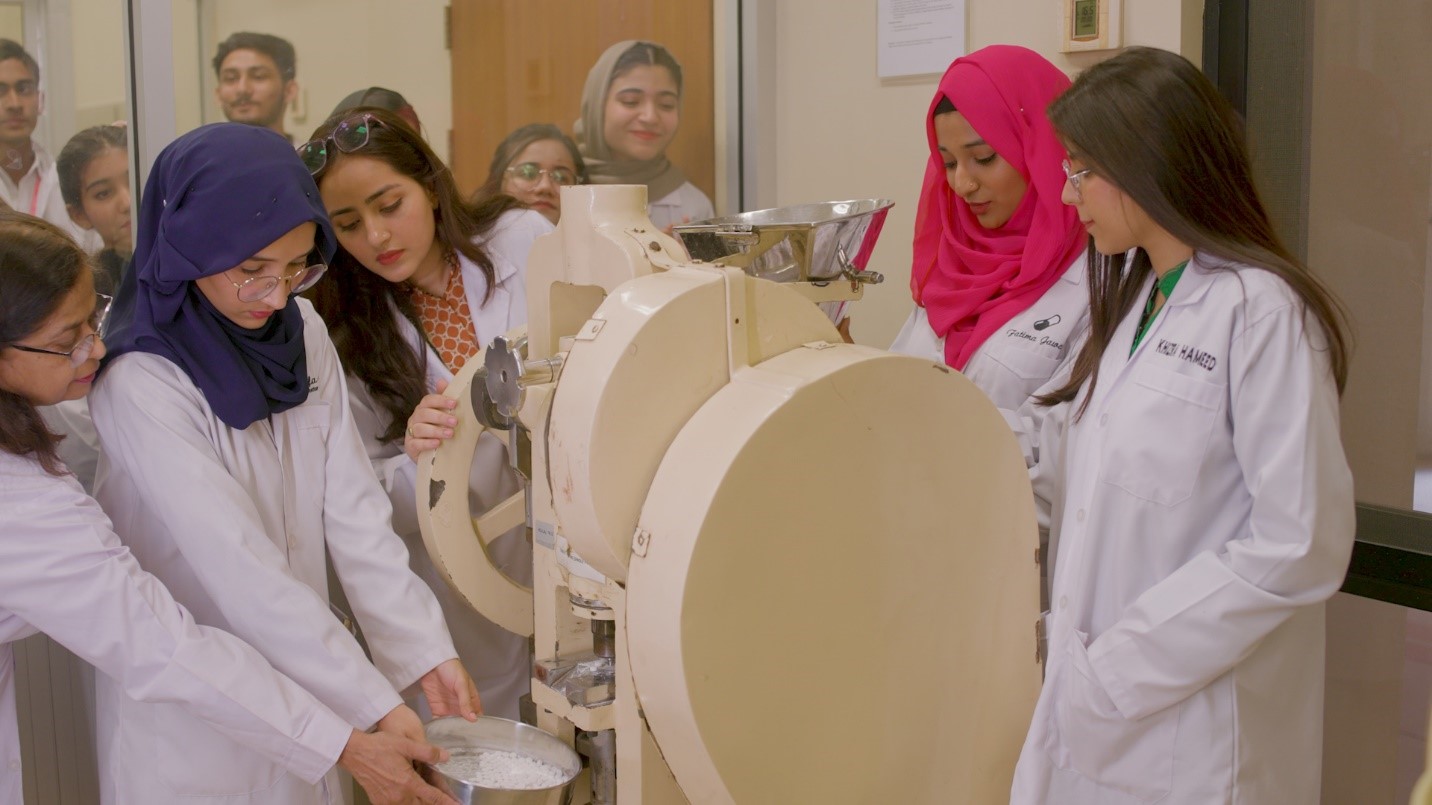
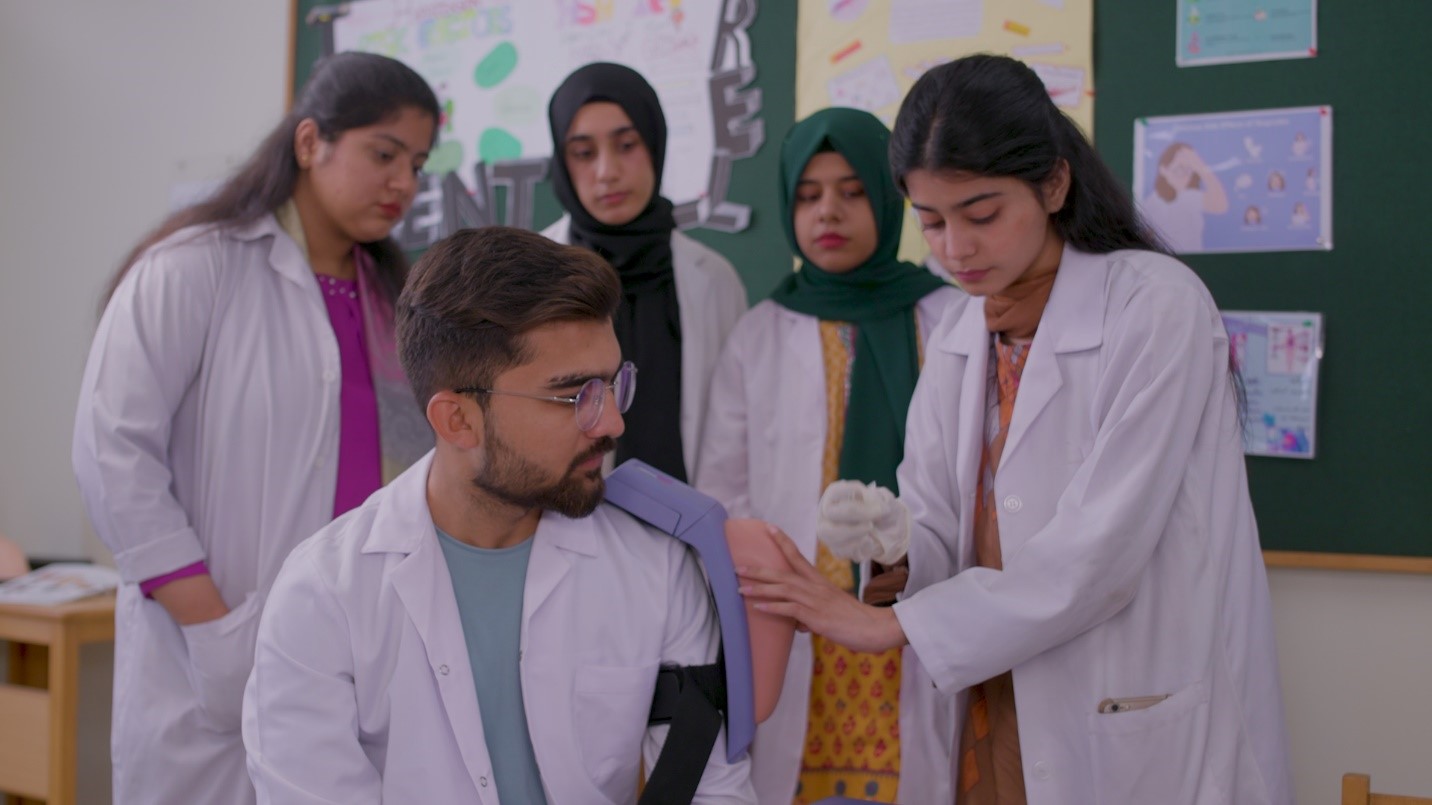
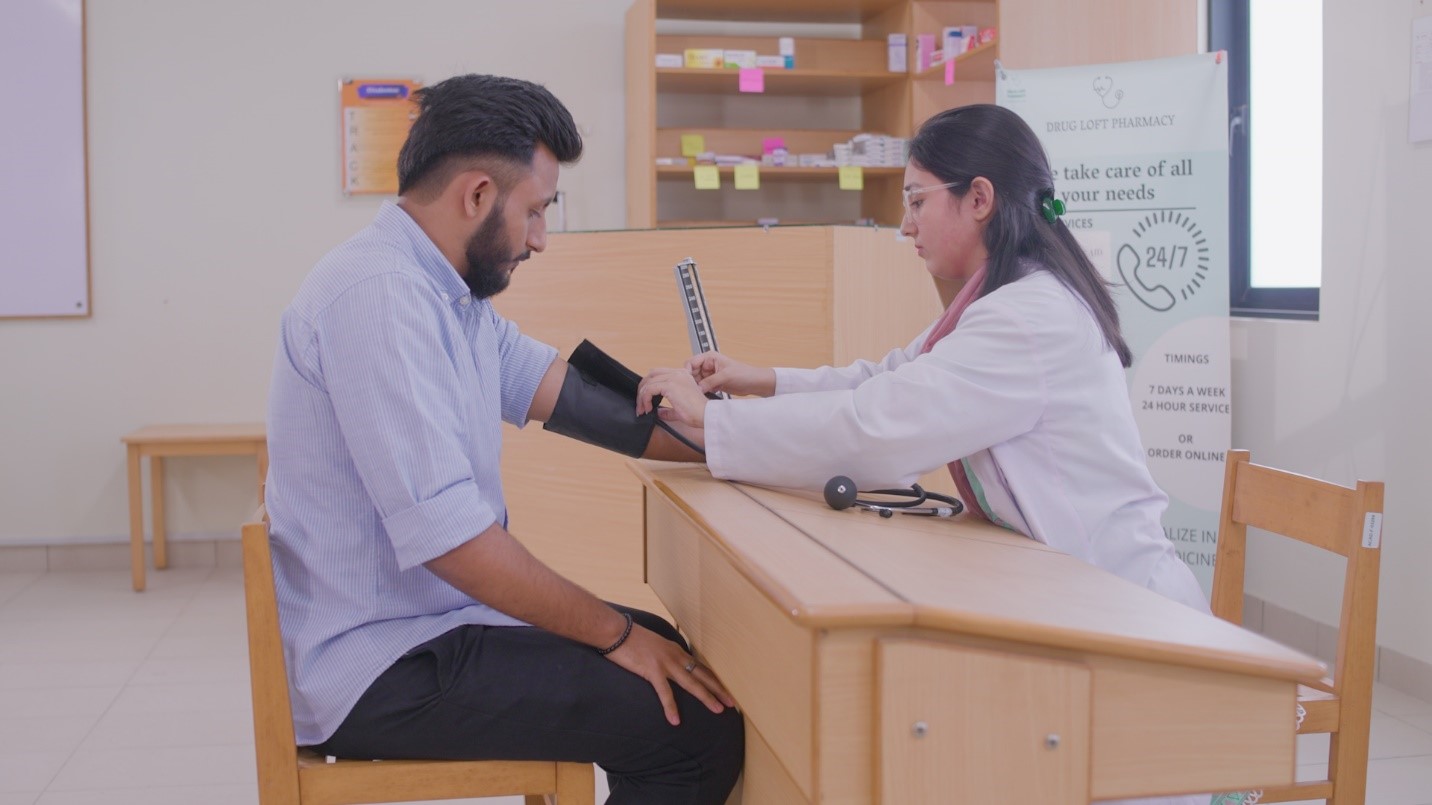
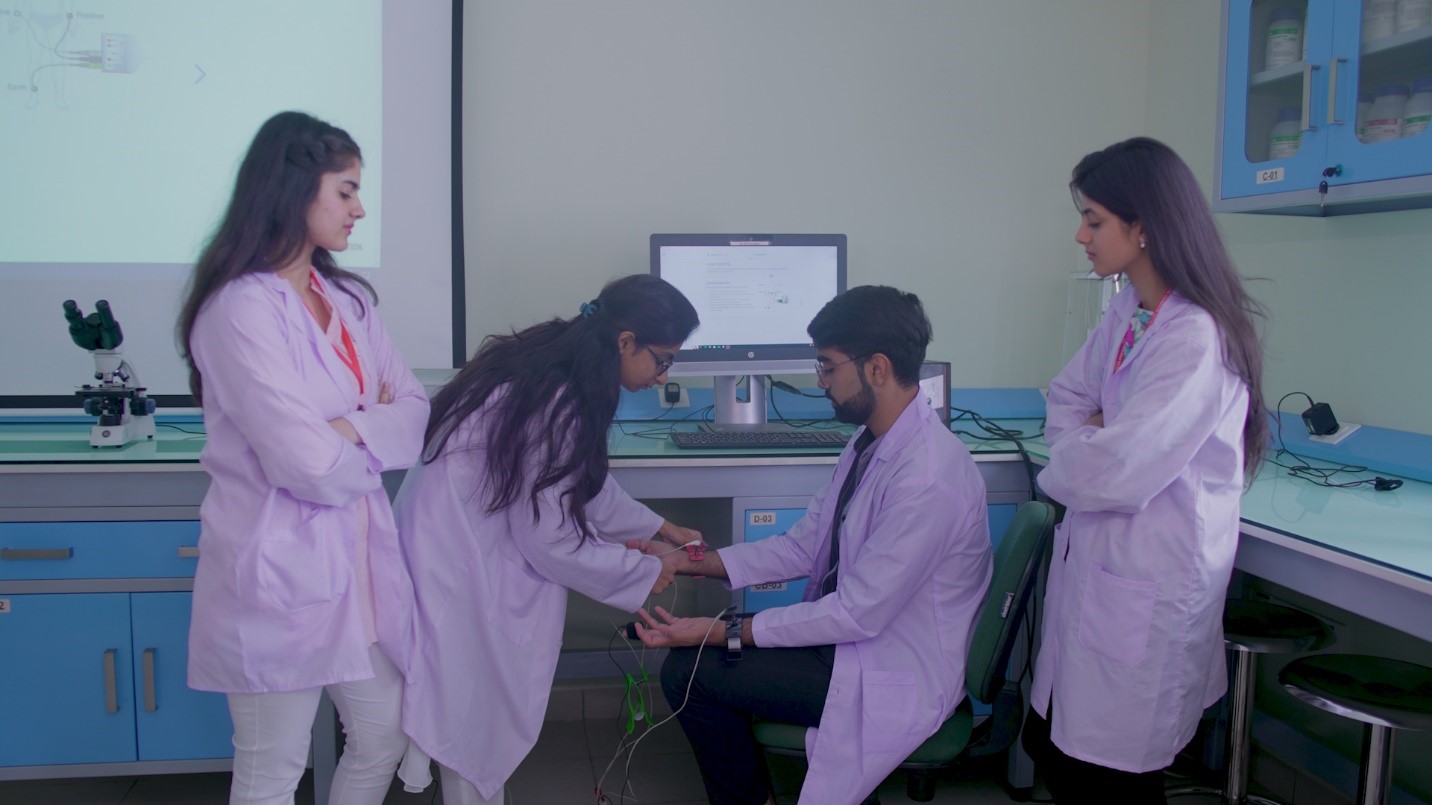
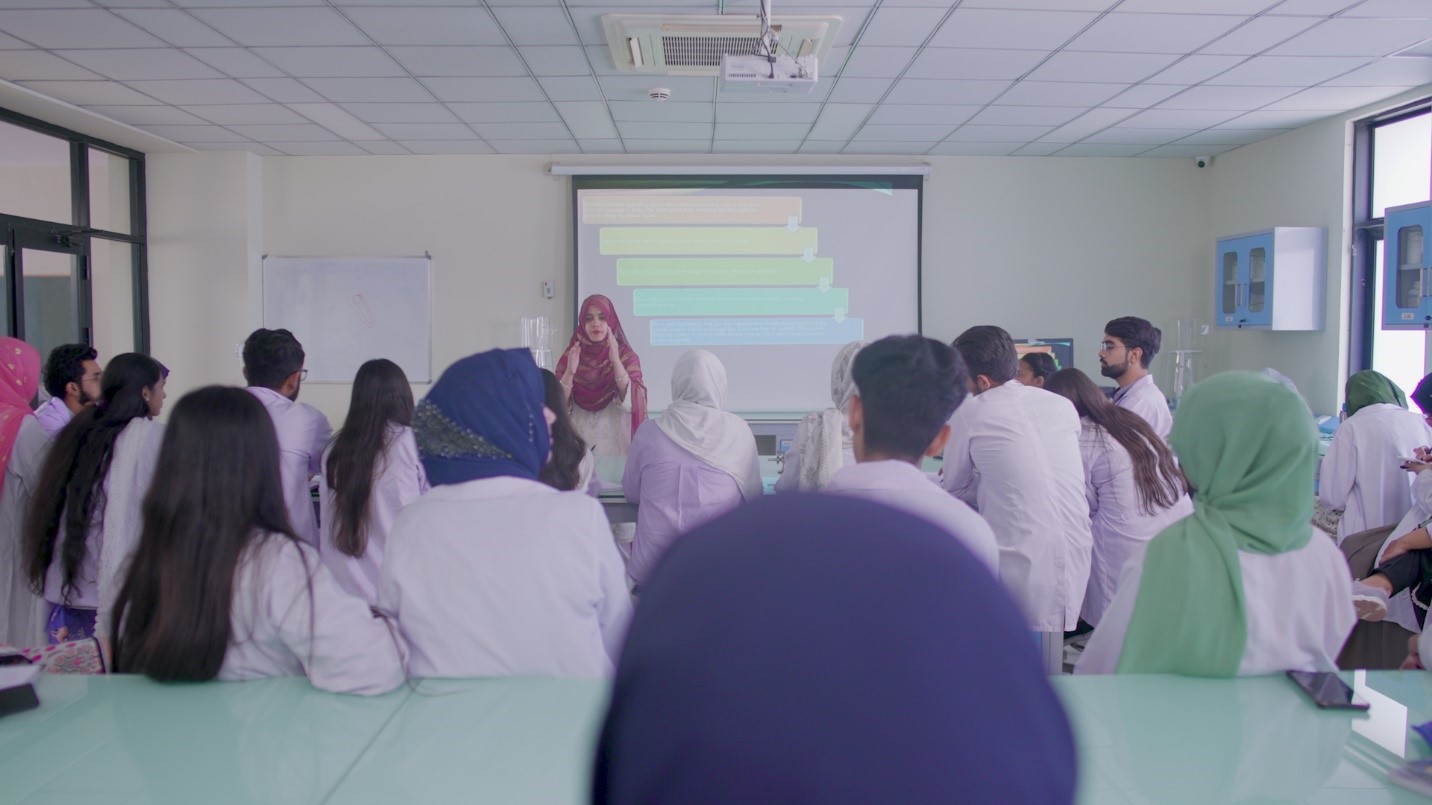
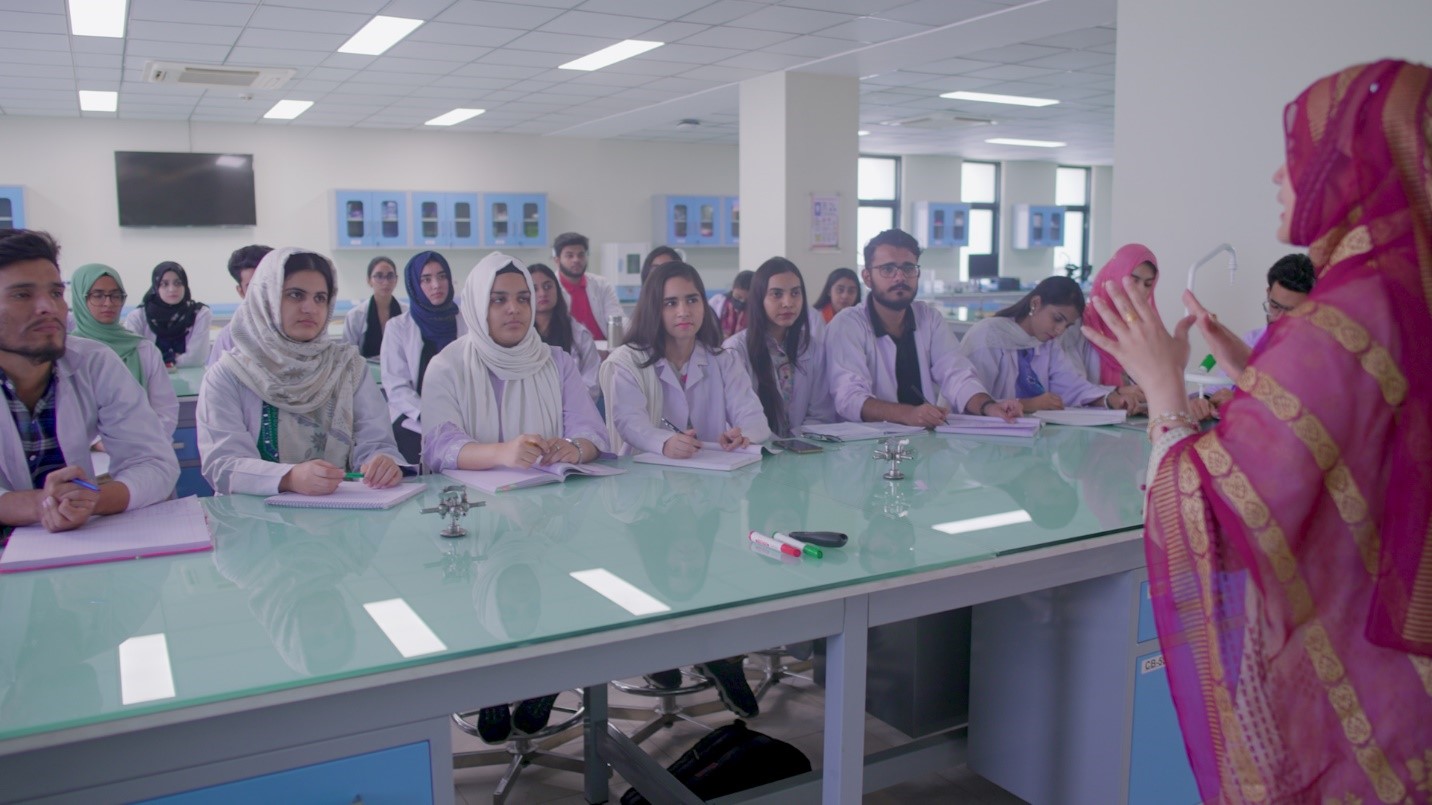
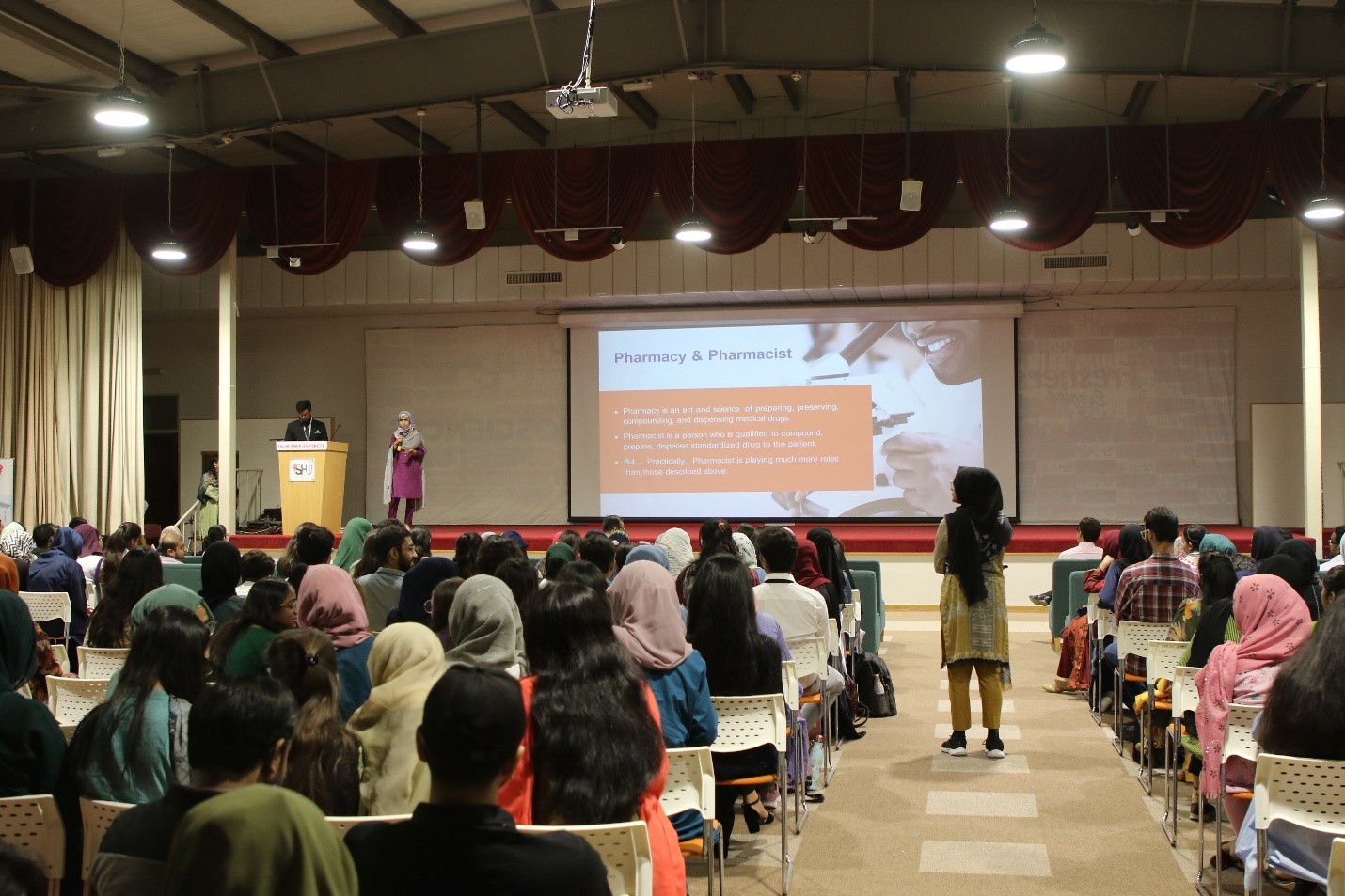
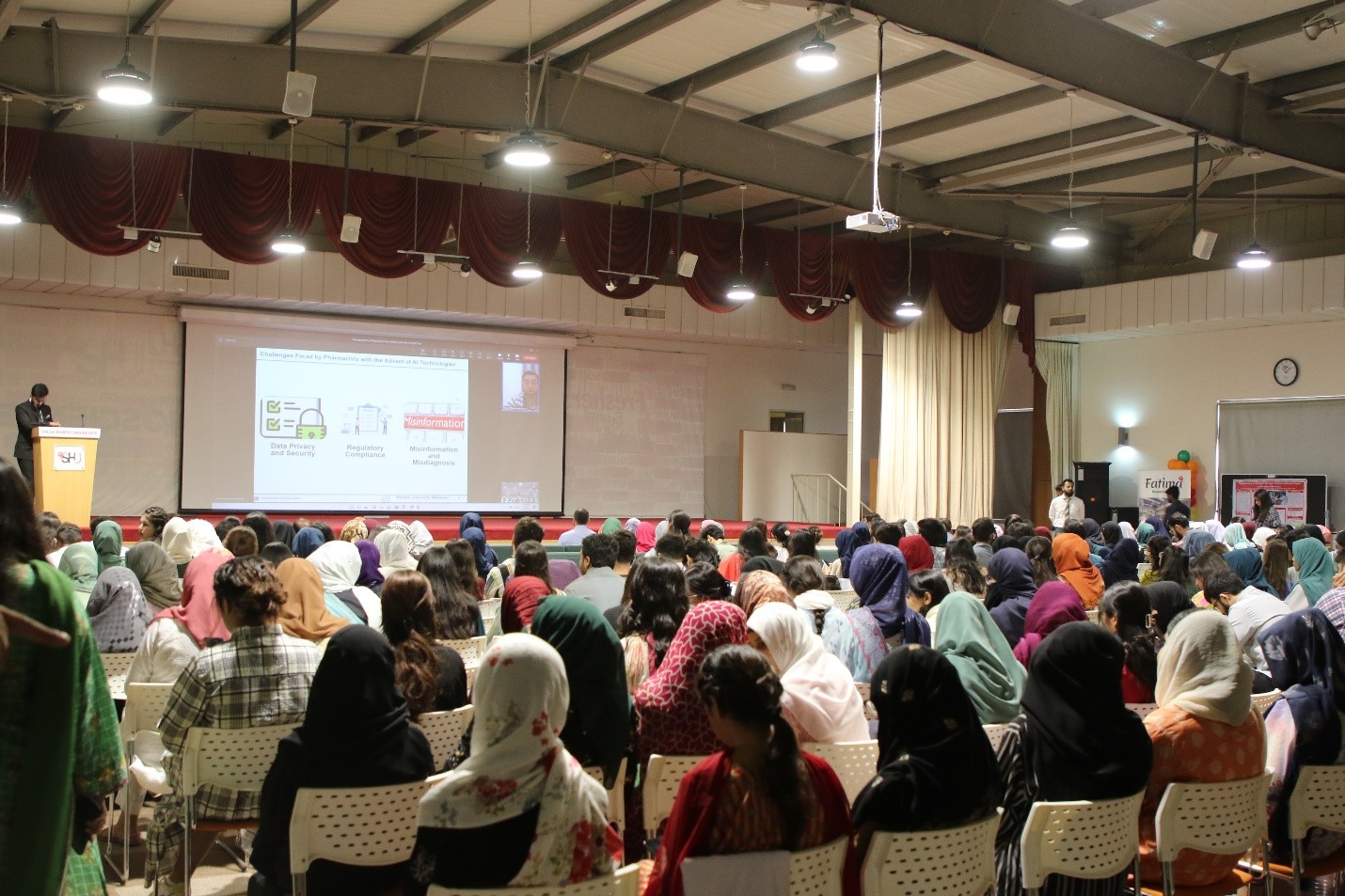
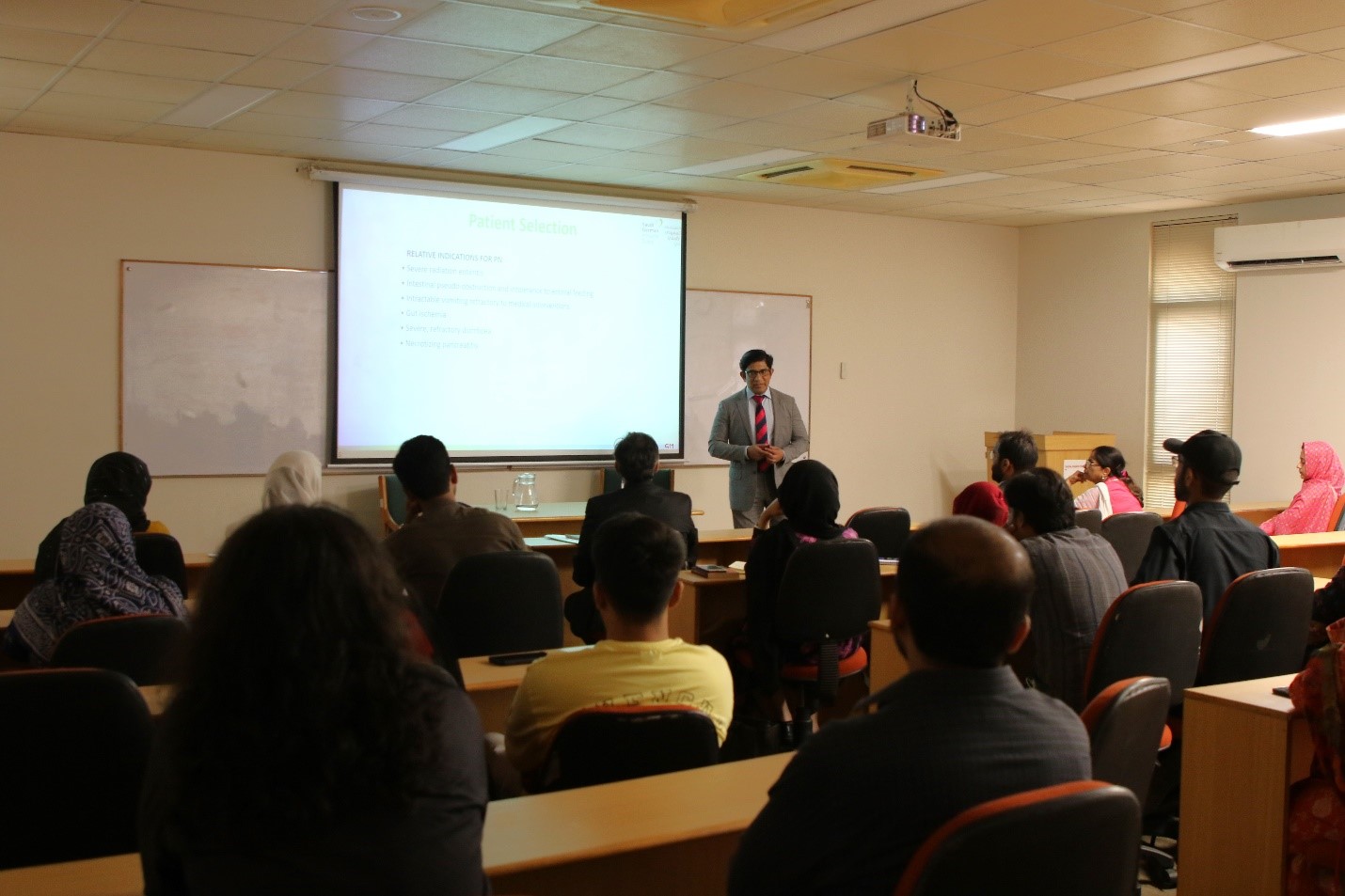
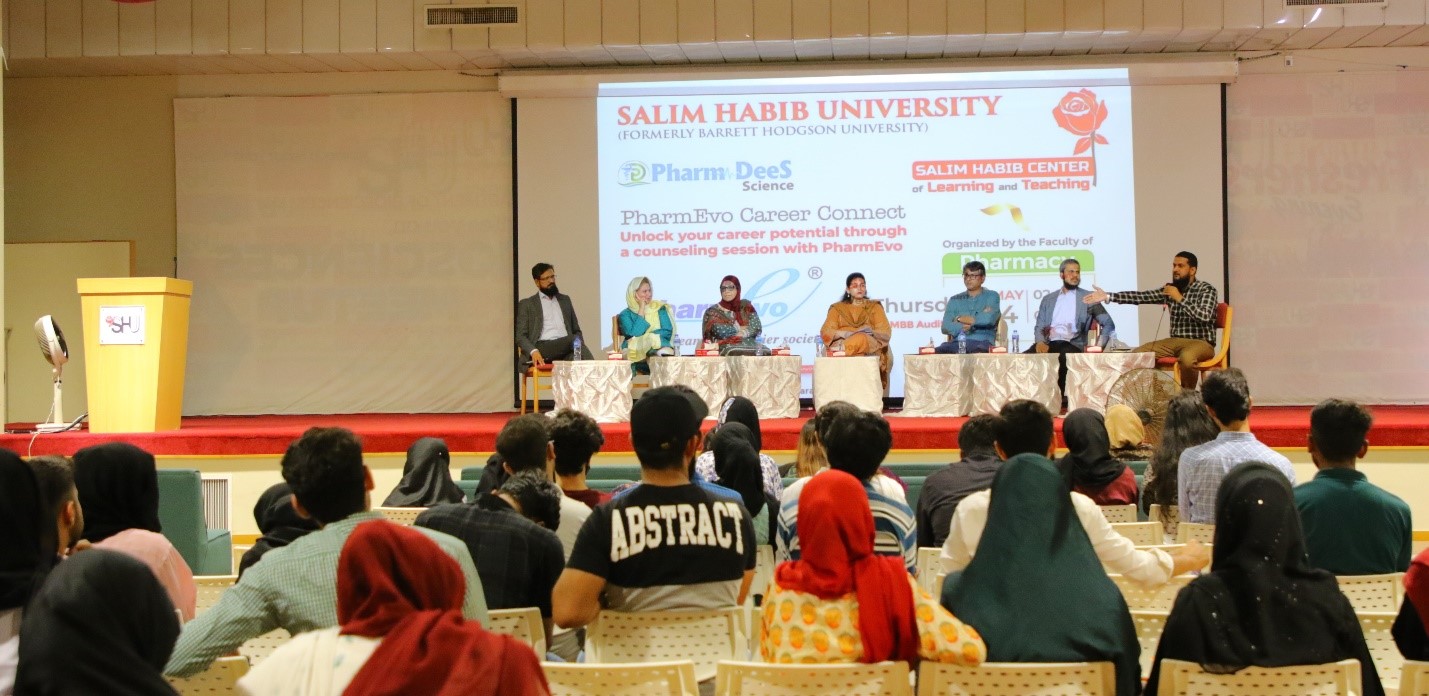
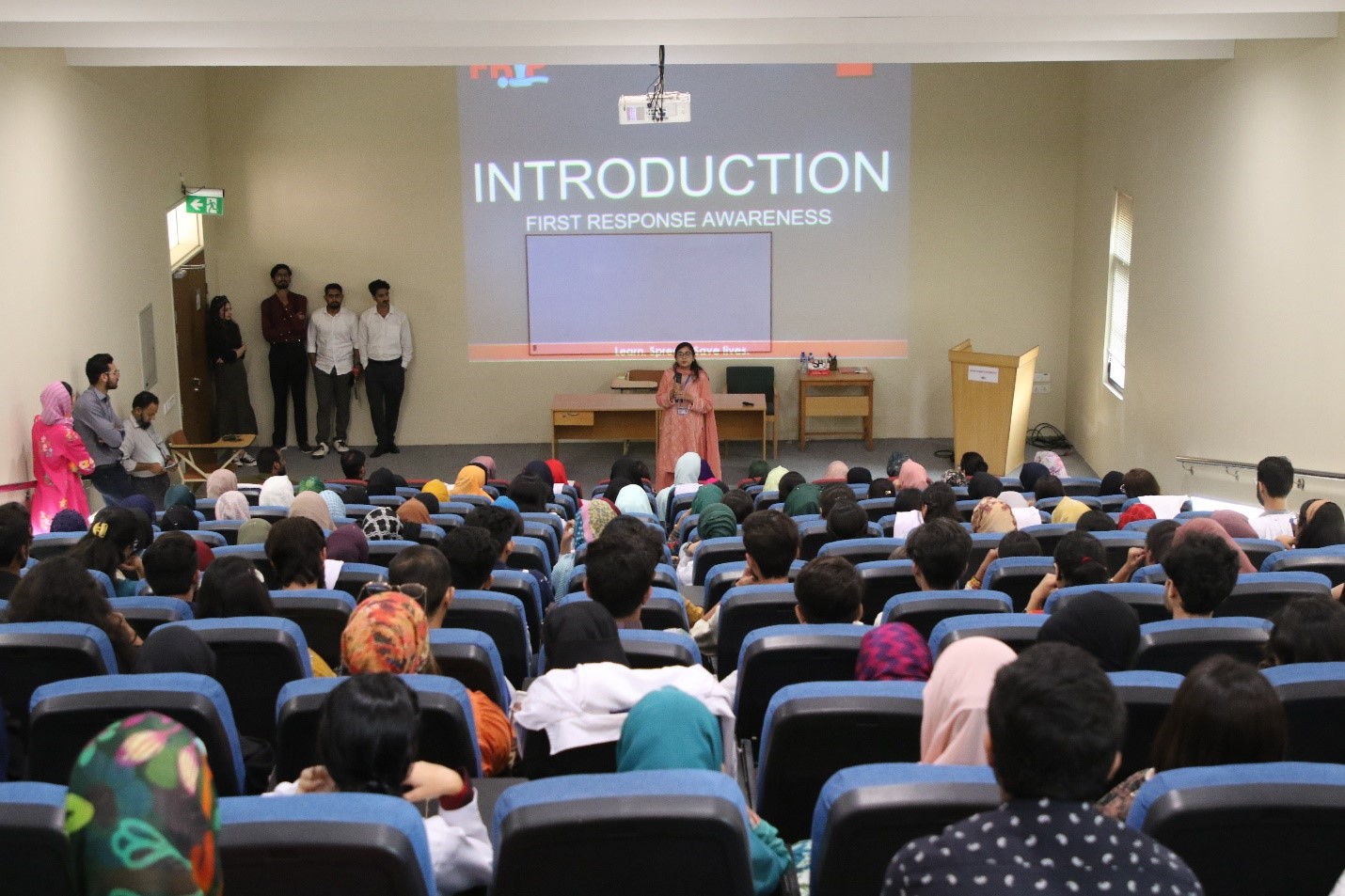
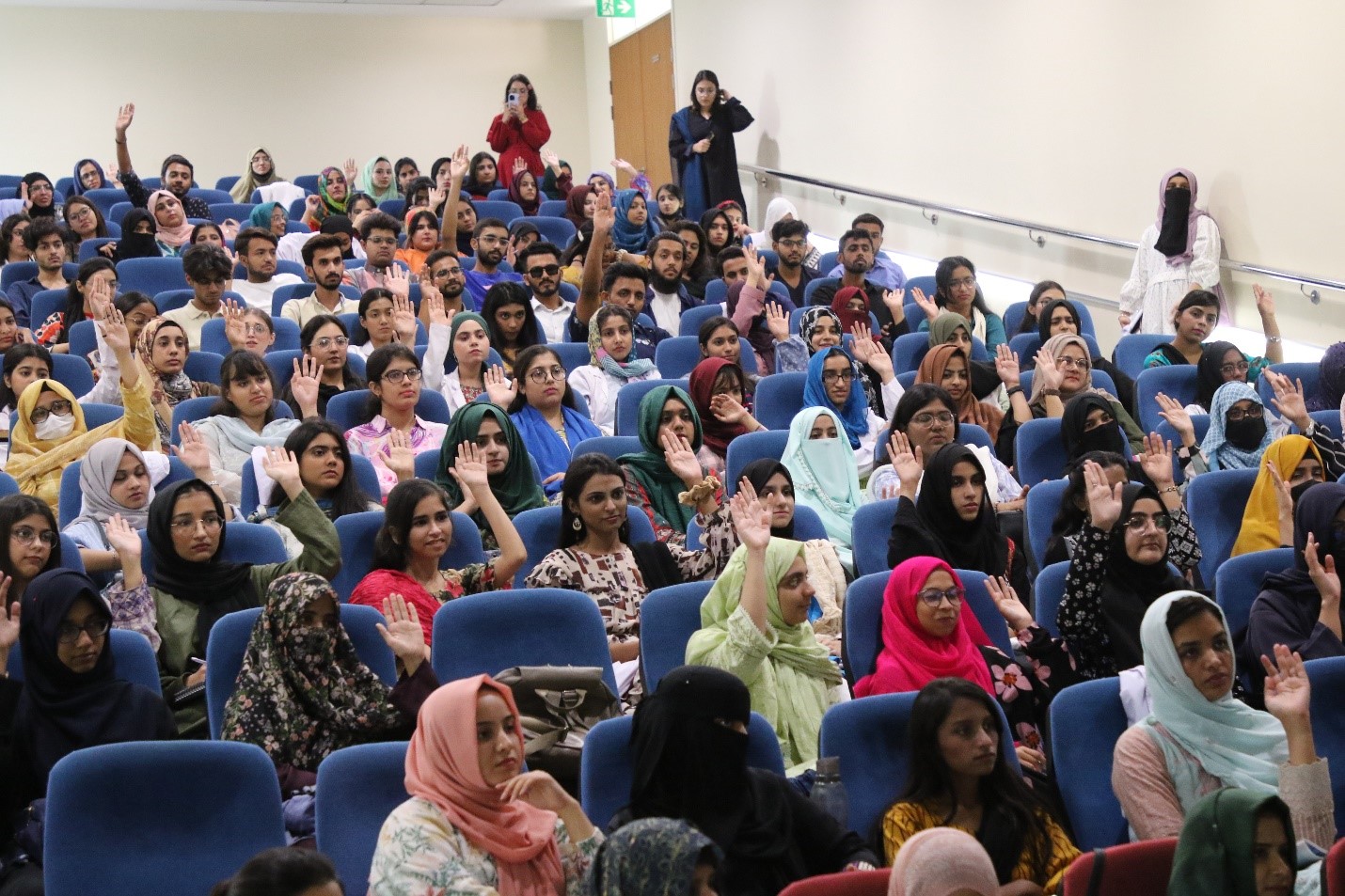
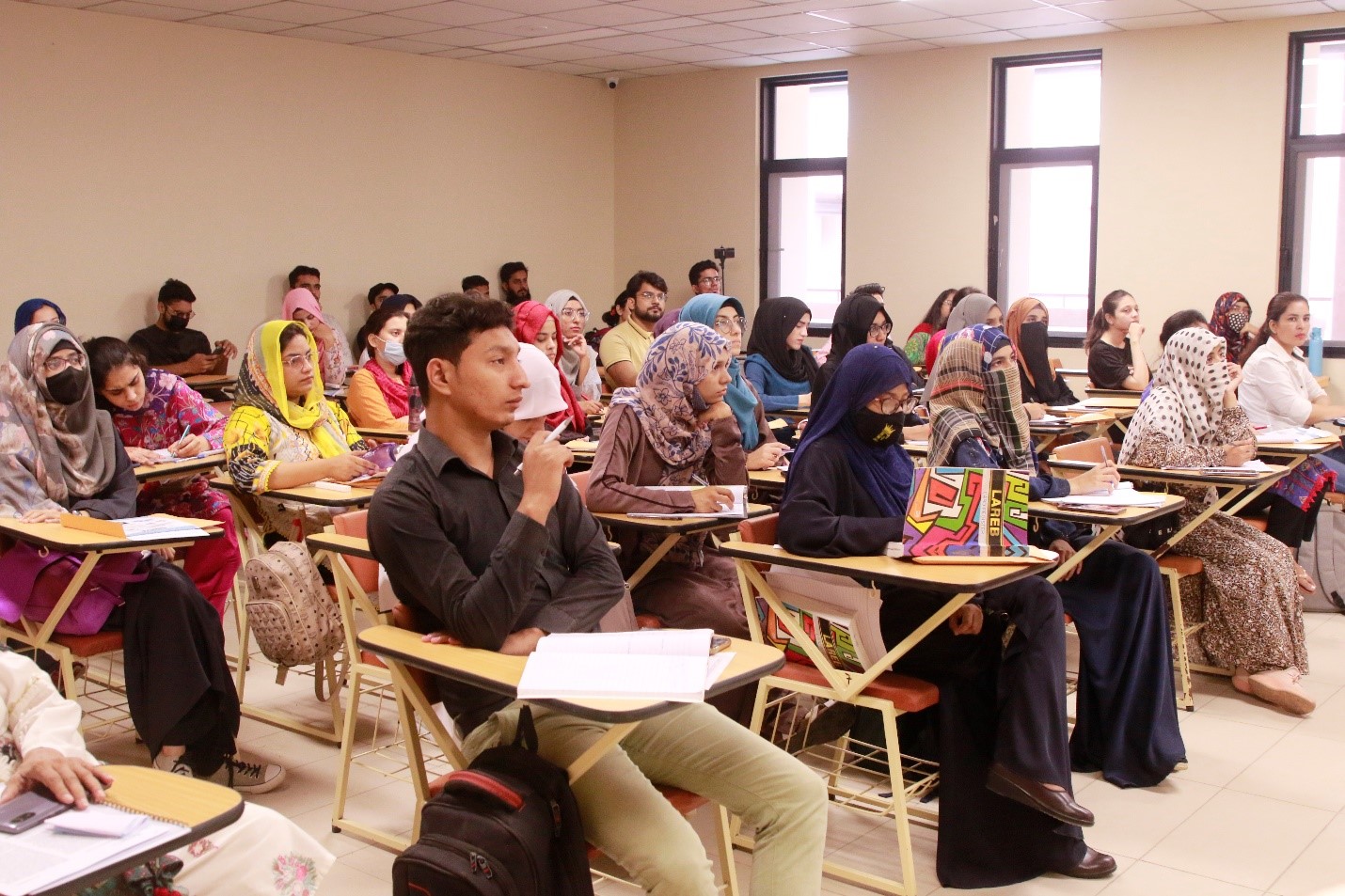
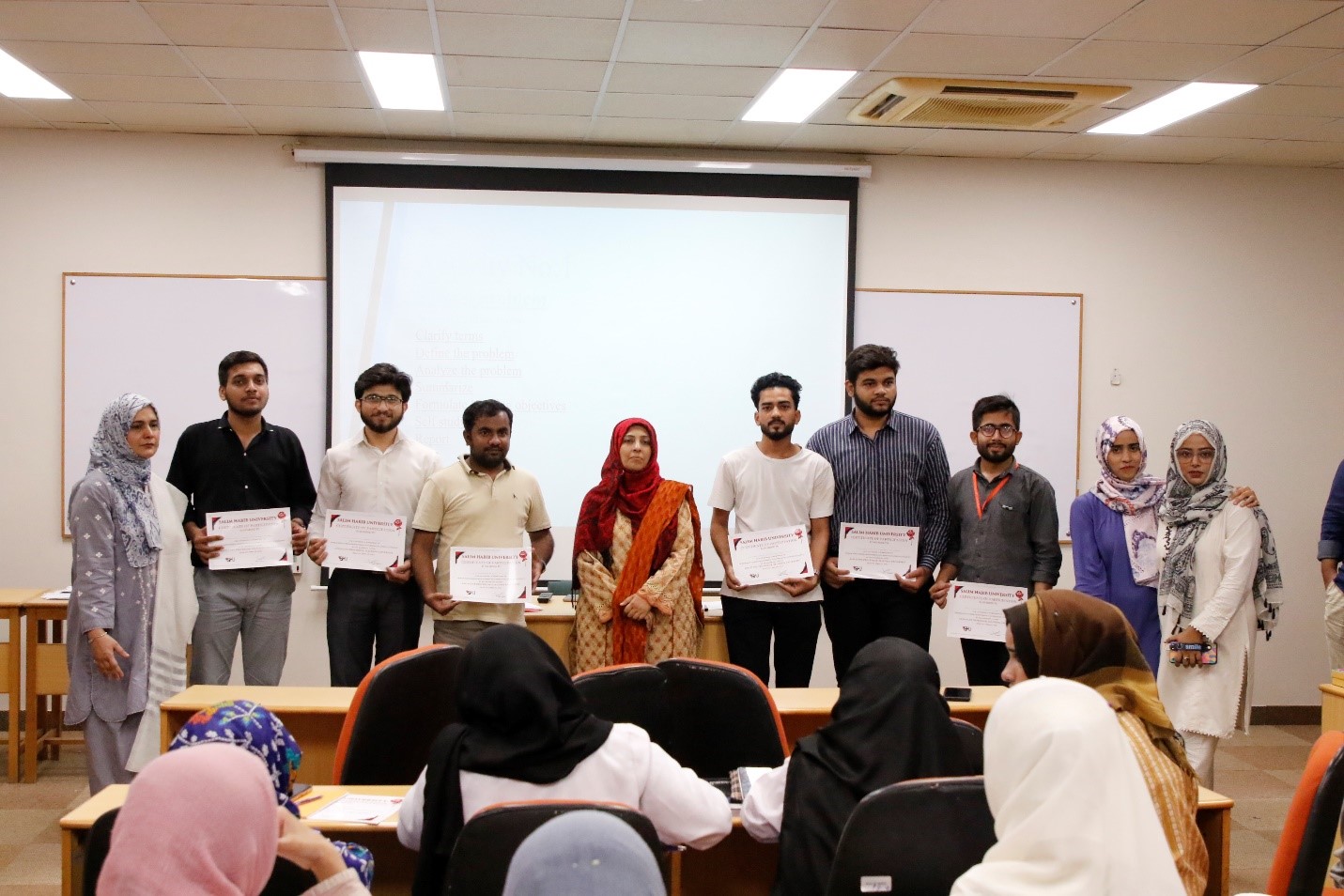
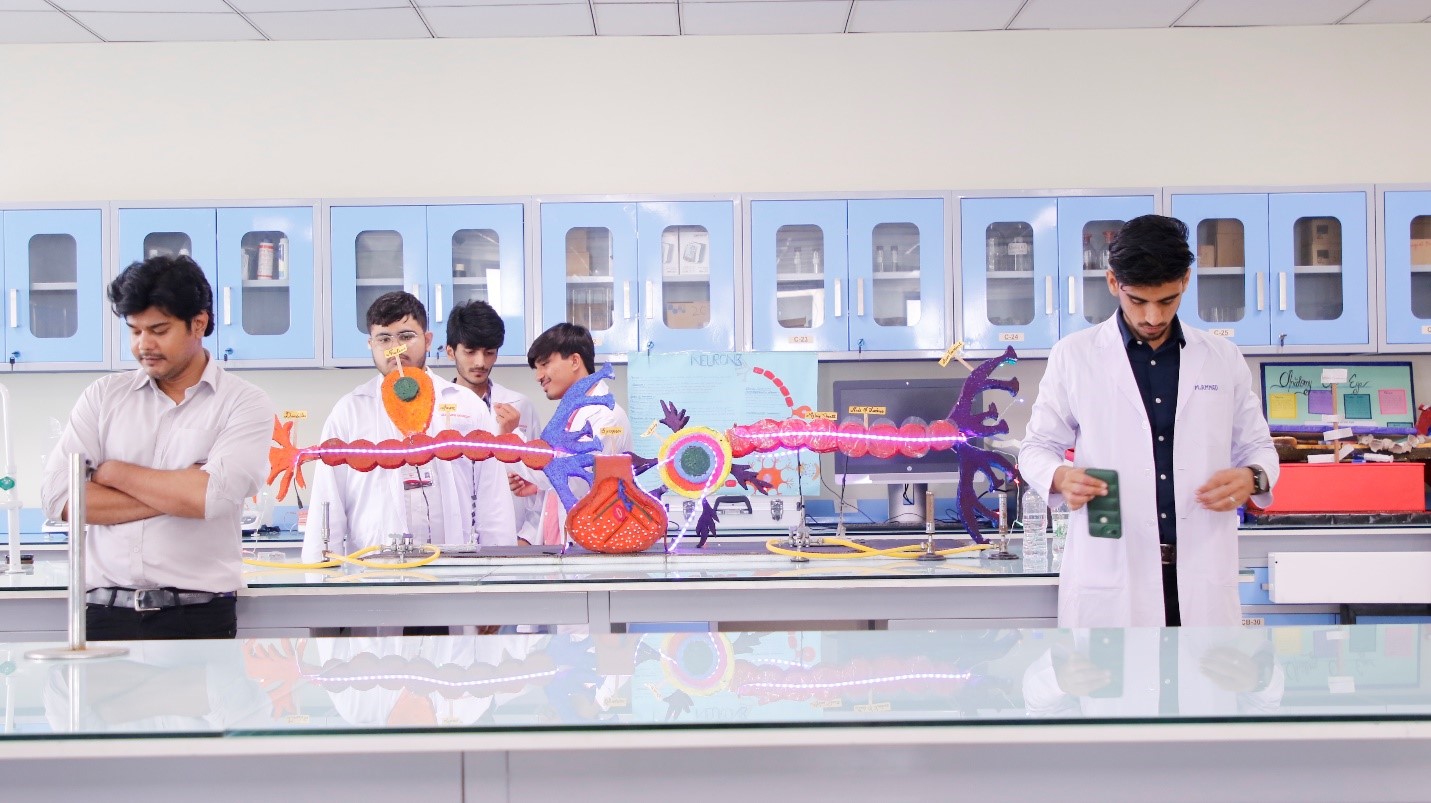
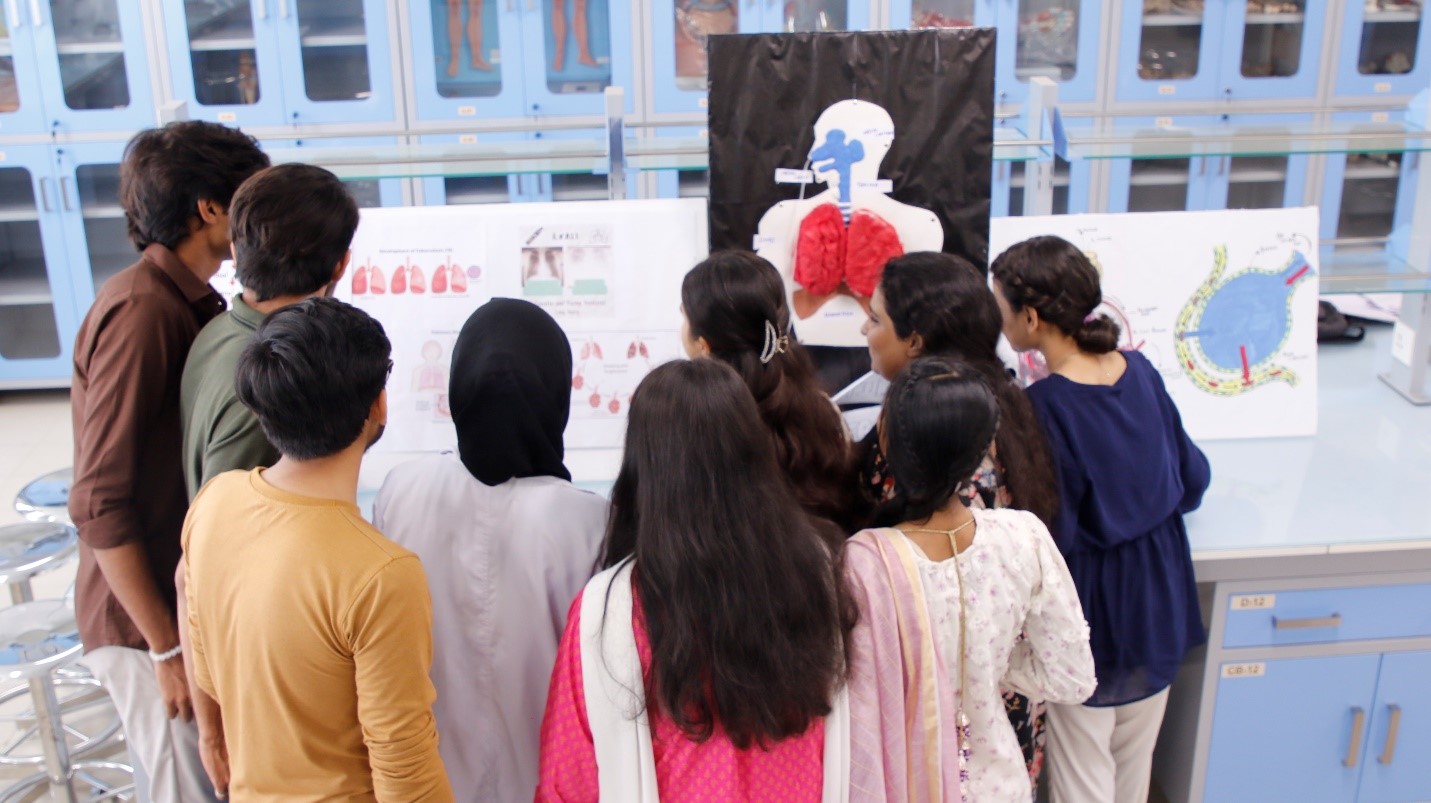
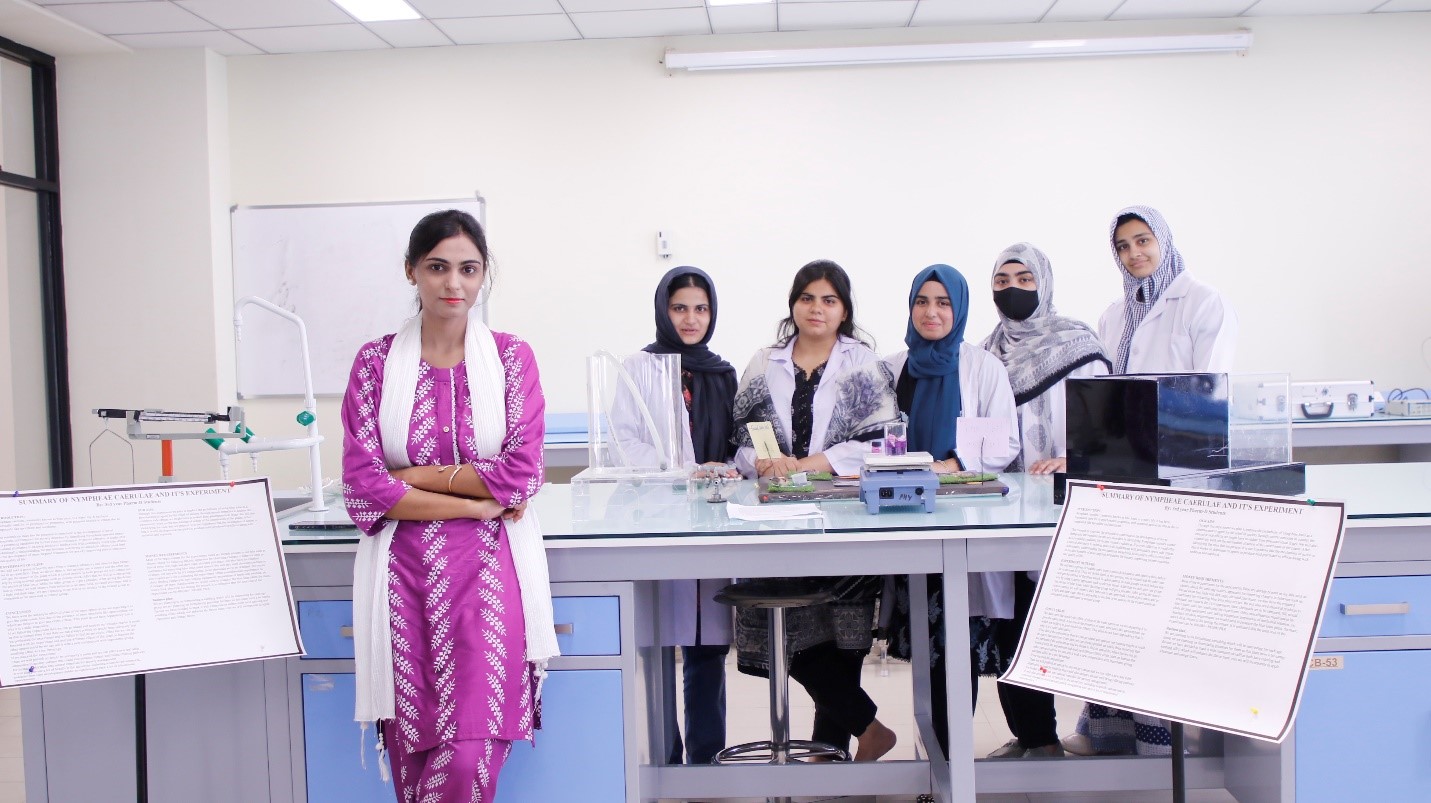
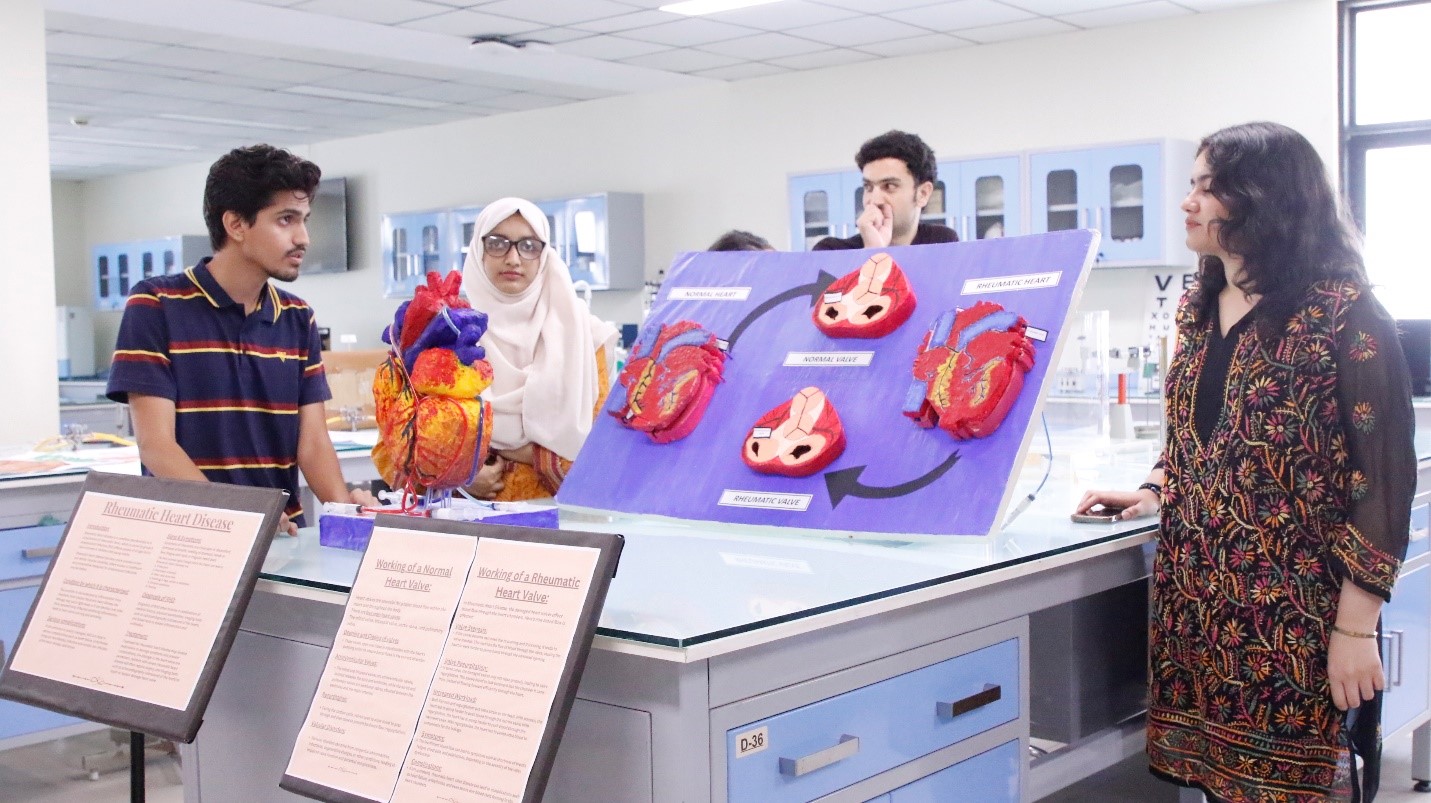
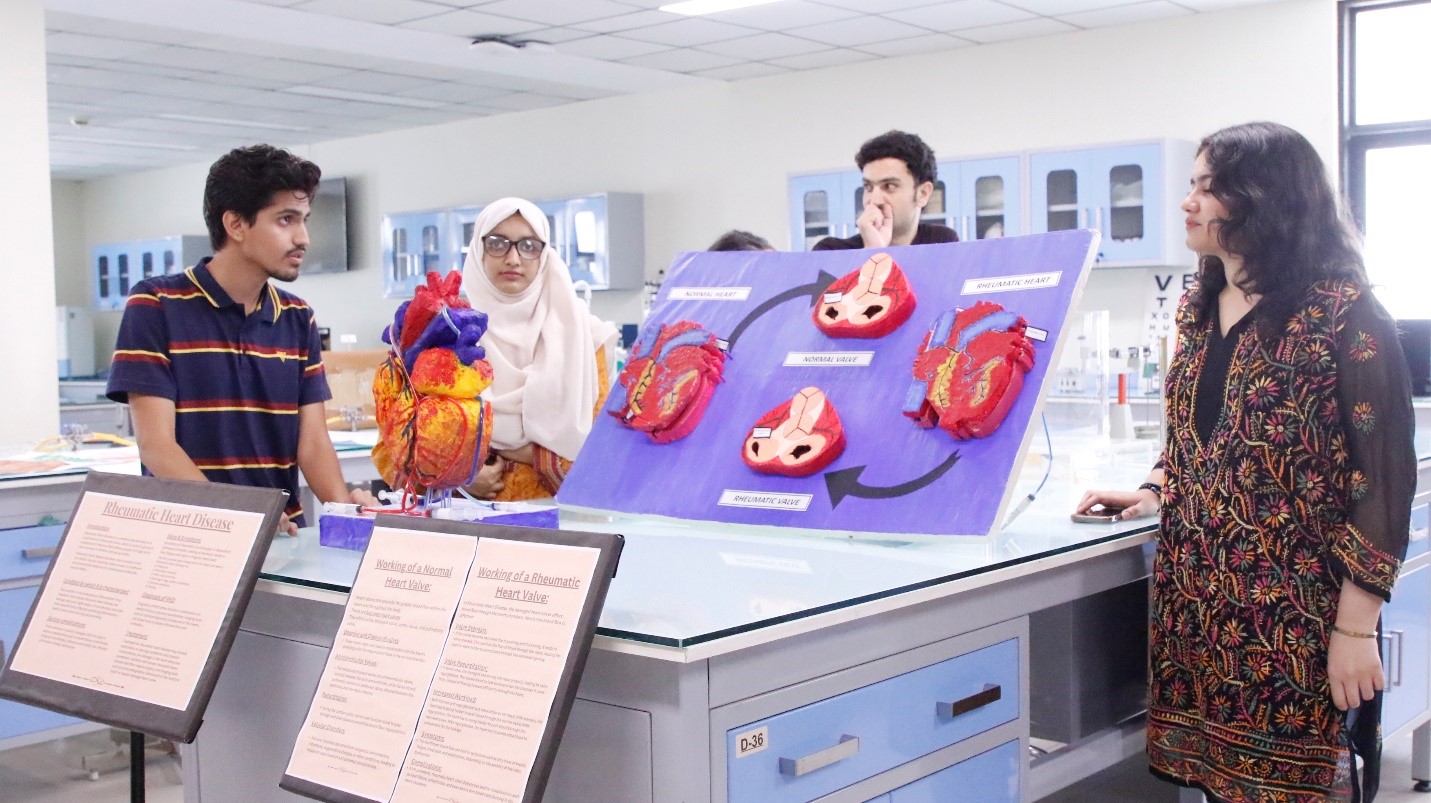
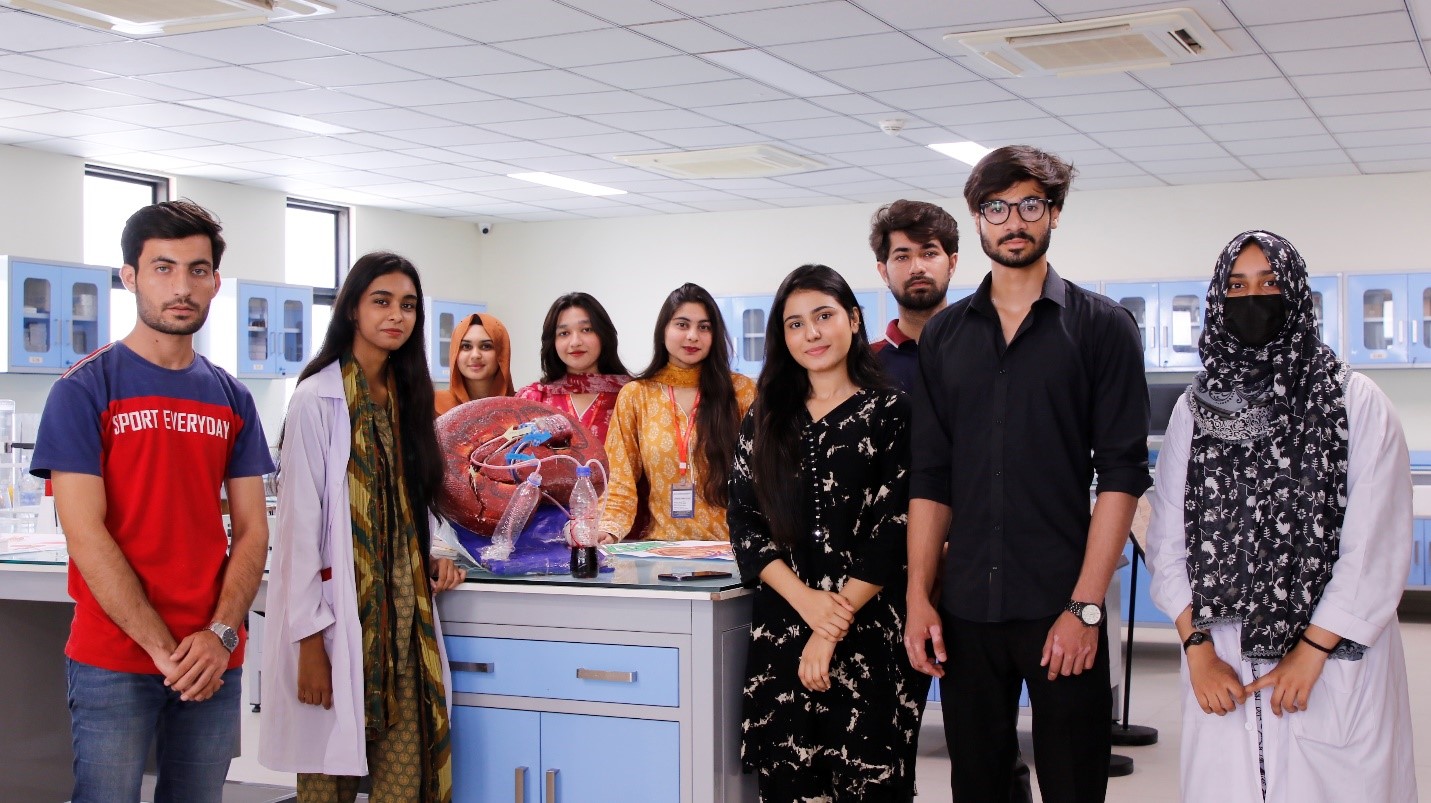
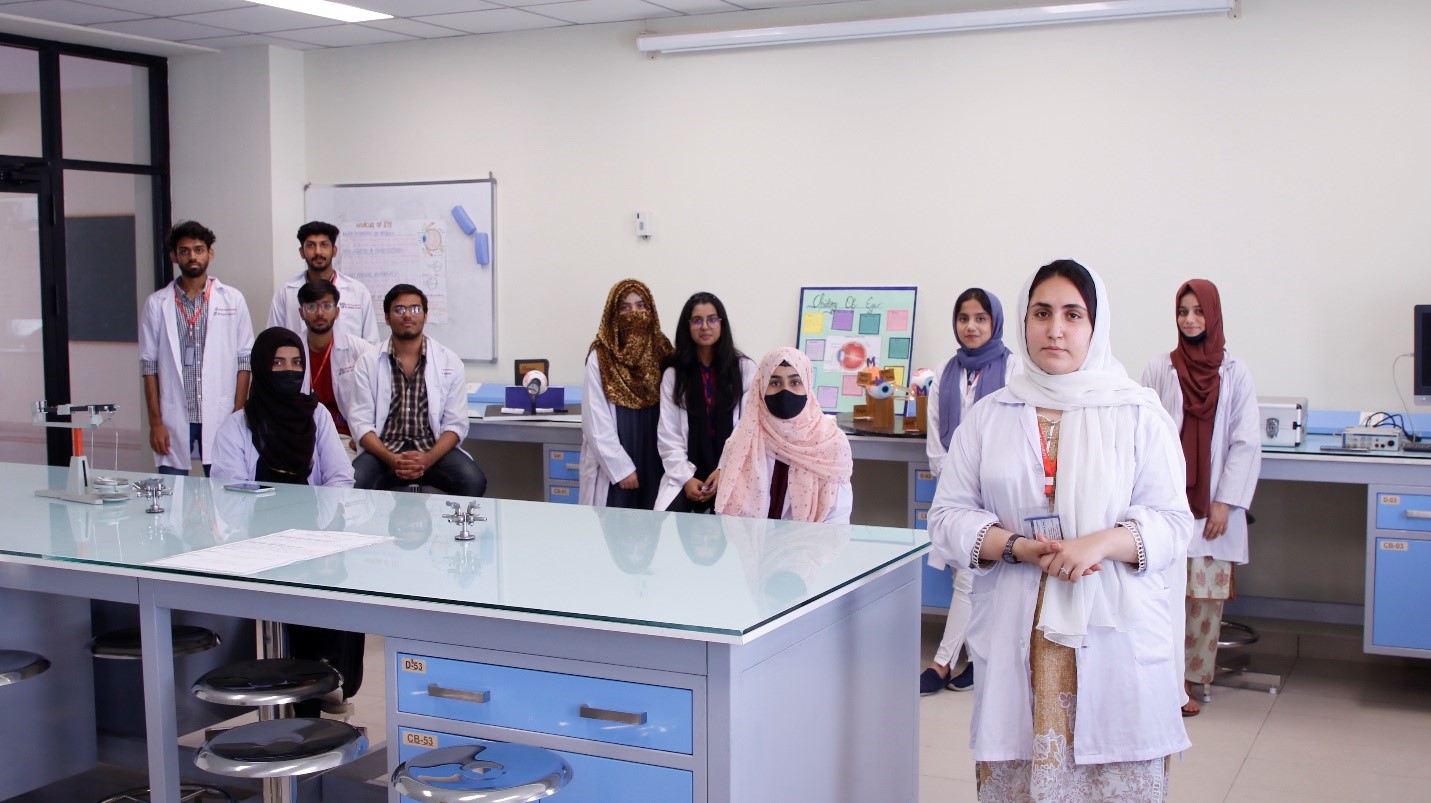
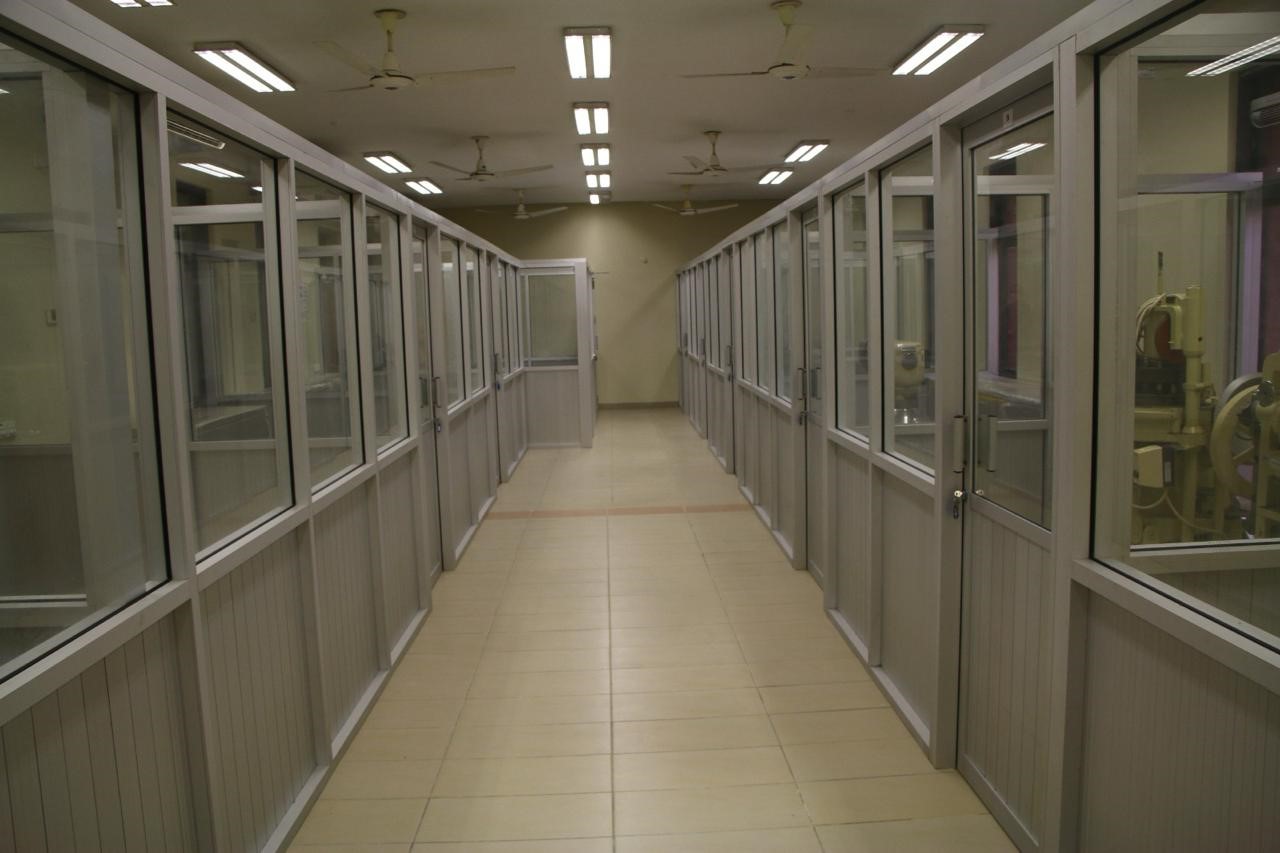
BS Cosmetic Sciences
Cosmetology is a science and an art. The Bachelor of Cosmetic Sciences is a 4-year laboratory-based program, which combines the knowledge of Science with Art, amalgamated with the Business aspects, with and aim of acquiring expertise in producing and marketing Cosmetic and Personal Care Products.
This course is designed for the candidates who have a flare for aesthetics, pleasant appearance, and beauty care services. It covers key aspects of chemistry, physiology, anatomy, dermatology and other sciences, with a focus on the nuances of Cosmetic Sciences, such as the definition and significance of cosmetics, biological systems, formulation and product development, manufacturing and quality management, sales and marketing, product stewardship, regulatory compliance, marketing and business framework, and an understanding of the processes of the conversion of raw materials into finished cosmetic products.
Course Structure
The basic concepts of this discipline will be strengthened initially, followed by a more in-depth exploration of formulations, lab, and industrial scale manufacturing, professional practices and regulation, leading towards the selection of a specialty or major through elective subjects. The program will conclude with a capstone project, which will demonstrate the summation of the total learning of the discipline, possibly leading to job placement opportunities.
In earlier semesters, students will be introduced to the basic concepts of Cosmetic Science, the human body, and the natural sciences. They will acquire knowledge of materials and develop skills to formulate, control, and assure the quality of specific cosmetic products. The program offers a choice between three specializations: Industrial Cosmetology or Personalized Cosmetic Care and Perfumery. Additionally, students will gain insight into the diverse legislative and regulatory frameworks governing cosmetics and related products.
Program Objectives
After the completion of this program, qualified graduates will be able to:
- Develop new cosmetic products, formulate and improve existing products, and manufacture, market and sell cosmetic products.
- Source and select various natural or synthetic raw materials for development of cosmetic products.
- Select and analyze raw materials and finished products against regulatory requirements to ensure compliance.
- Summarize and communicate ethical, health and environmental concerns to relevant stakeholders.
Career Prospects and Internships
- Research and Development Scientist - While researching for the Cosmetic products and improving the existing one's
- Cosmetic Formulation & Development expert - Preparing new Cosmetics & line extension
- Quality Control/Assurance Specialist - Managing to produce quality products.
- Regulatory Affairs Specialist - Compliance to available regulation and applicable legislation
- Sales and Marketing Manager - Managing the sales of products
- Brand Manager - Product launching and marketing strategies for selling
- Production Supervisor - Manafacturing of Cosmetics
- Consultant/Trainer - Providing expert opinions in the field of technical, Regulatory and commercial operations
-
Entrepreneurial Opportunities to start:
- Cosmetic Product Line
- Cosmetic Retail Store
- Cosmetic Ingredient Supply Business
- Beauty Salon/Spa
- Cosmetic Product Distribution
- Contract Manufacturing
- Cosmetic Packaging Design and Manufacturing
- Cosmetic Regulatory Consultation
- Cosmetic Research and Development Lab
- Regulatory Compliance
- Market Research
Eligibility Criteria
- Minimum 50% marks in HSSC or equivalent qualifications recognized by the Inter Board Committee of Chairmen (IBCC)
- Clear the Aptitude Test and Interview at Salim Habib University
Scheme of Study (Semester Wise)
- Duration: 4 Years
- Semesters: 8
- Credit Hours: 124
1st Year |
||
Semester - I |
||
| Course Code | Course Tittle | Credit Hours |
| ENG 301 | English - A (Business and Functional English) | 3 |
| CS 303 | Core Concepts in Cosmetic Science | 3 |
| CS 305 | Human Anatomy | 2 |
| CS 307 | Basic Principles of Chemistry in Cosmetic Science | 3 |
| CS 307 (Lab.) | Basic Principles of Chemistry in Cosmetic Science | 1 |
| CS 309 | Microbiology & Immunology in Cosmetic Science | 3 |
| CS 309 (Lab.) | Microbiology & Immunology in Cosmetic Science | 1 |
| CS 311 | Philosophy and Psychology of Aesthetics | 2 |
| Total Credit Hours | 18 | |
Semester - II |
||
| Course Code | Course Tittle | Credit Hours |
| ENG 302 | English - B (Communication & Writing skills) | 3 |
| CS 304 | Cosmetic Product Forms | 3 |
| CS 306 | Human Physiology | 2 |
| CS 308 | Cosmeceutical Chemistry | 3 |
| CS 308 (Lab.) | Cosmeceutical Chemistry | 1 |
| MTA 310 | Concepts of Mathematics and Accounting | 2 |
| BS 312 | Bio-statistics | 2 |
| Total Credit Hours | 16 | |
2nd Year |
||
Semester - III |
||
| Course Code | Course Tittle | Credit Hours |
| IST 401 | Islamic Studies | 2 |
| CS 403 | Materials and Ingredients in Cosmetic Products | 3 |
| CS 405 | Cosmetics and Personal Care | 3 |
| CS 407 | Formulation Development of Cosmetic Products | 3 |
| CS 407 (Lab.) | Formulation Development of Cosmetic Products | 1 |
| CS 409 | Dermatology and Allergies | 2 |
| ICT 411 | Information and Communication Technology Applications | 2 |
| ICT 411 (Lab.) | Information and Communication Technology Applications | 1 |
| Total Credit Hours | 17 | |
Semester - IV |
||
| Course Code | Course Tittle | Credit Hours |
| PST 402 | Pakistan Studies | 2 |
| CS 404 | Designing and Formulation of new Cosmetics | 3 |
| CS 404 (Lab.) | Designing and Formulation of new Cosmetics | 1 |
| CS 406 | Drugs as Cosmetics | 2 |
| CS 408 | Ethics and Values in Cosmetic Science | 2 |
| CS 410 | Cosmetic Procedures | 3 |
| CS 410 (Lab.) | Cosmetic Procedures | 1 |
| Total Credit Hours | 14 | |
3rd Year |
||
Semester - V |
||
| Course Code | Course Tittle | Credit Hours |
| CS 501 | Research Methodology | 2 |
| CS 503 | Quality Assurance and Control of Cosmetic Products | 3 |
| CS 503 (Lab.) | Quality Assurance and Control of Cosmetic Products | 1 |
| CS 505 | Product Stability, Safety and Toxicology of Cosmetics | 3 |
| CS 505 (Lab.) | Product Stability, Safety and Toxicology of Cosmetics | 1 |
| CS 507 | Elective - 1 | 3 |
| Total Credit Hours | 13 | |
Semester - VI |
||
| Course Code | Course Tittle | Credit Hours |
| CS 502 | Commercial Scale Manufacturing of Cosmetics | 3 |
| CS 502 (Lab.) | Commercial Scale Manufacturing of Cosmetics | 1 |
| CS 504 | Green Cosmetic Products | 3 |
| CS 504 (Lab.) | Green Cosmetic Products | 1 |
| CS 506 | Aromatic Science - Perfumes and Fragrances | 2 |
| CS 506 (Lab.) | Aromatic Science - Perfumes and Fragrances | 1 |
| CS 508 | Elective - 2 | 3 |
| Total Credit Hours | 14 | |
4th Year |
||
Semester - VII |
||
| Course Code | Course Tittle | Credit Hours |
| CS 601 | Business Development, Marketing and Sales of Cosmetics | 3 |
| CS 601 (Lab.) | Business Development, Marketing and Sales of Cosmetics | 1 |
| CS 603 | Supply Chain and Distribution of Cosmetic Products | 2 |
| CS 603 (Lab.) | Supply Chain and Distribution of Cosmetic Products | 1 |
| CS 605 | Capstone Project | 3 |
| CS 607 | Local and Export Markets of Cosmetics | 2 |
| CS 609 | Elective - 3 | 3 |
| CS 611 | Elective - 4 | 3 |
| Total Credit Hours | 18 | |
Semester - VIII |
||
| Course Code | Course Tittle | Credit Hours |
| CS 602 | Entrepreneurship in Cosmetic Industry | 3 |
| CS 604 | Digital Marketing and Social Media | 2 |
| CS 606 | Regulatory Affairs of Cosmetics | 3 |
| CS 608 | Health, Longevity and Anti-aging | 3 |
| CS 610 | Field Visits | 3 |
| Total Credit Hours | 14 | |
| MAJOR DISCIPLINE & ELECTIVES | ||
| Major 1: Industrial Cosmetology | Major 2: Personalized Cosmetic Care | Major 3: Perfumery |
|
|
|
Pharmacy Practice Advisory Board Members

Mr. Adnan Hirani
CEO Hirani Pharmaceuticals (Pvt.) Limited, Chairman South Zone PPMA

Mr. Anis A. Shah
Board Director, Hoechst Pakistan Ltd. and Pharma Professional

Mr. Haroon Qasim
Managing Director PharmEvo (Pvt.) Limited

Mr. Jalal Uddin Zafar
Director Nabi Qasim and Surge Pharma group and Chairman Technical Committee, PPMA

Mr. Kaiser Waheed
CEO Medisure Pharma International

Mr. Shahid Ghoury
Managing Director, Scilife Pharma (Pvt.) Limited

Mr. Zahid Saeed
CEO Indus Pharma (Pakistan), Ex-Chairman, Pakistan Pharmaceutical Manufacturers Association (PPMA),

Dr. Iftikhar Jafri
Consultant GMP Compliance, Ex-Technical Head Pfizer Pakistan Limited, Ex- Country Head US Pharmacopeia

Dr. Abid Sheikh
Head-Resource Generation SMBB Institute of Trauma, Karachi

Mr. Liaquat Jawaid
Chairman Morgan Group

Dr. Ghazala Ishrat
Associate Professor & Chairperson

Dr. Mudassar Azhar
Associate Professor and Chairperson (Basic Medical Sciences)
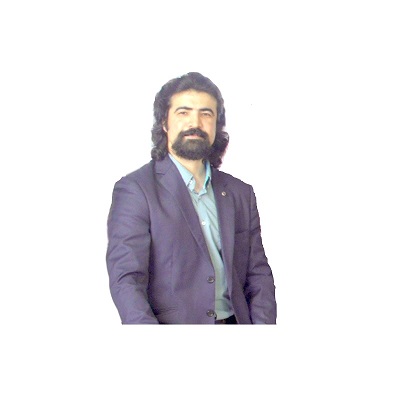
Dr. Jamshed Arslan
Assistant Professor
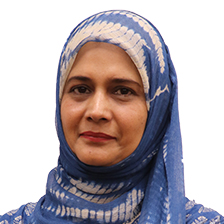
Dr. Farhana Tasleem
Assistant Professor
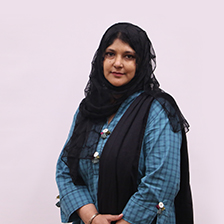
Ms. Kiran Amir Ali
Lecturer Pharmaceutical Chemistry
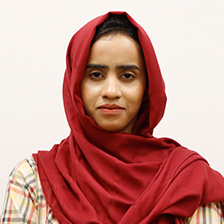
Ms. Saba Razzak.
Lecturer
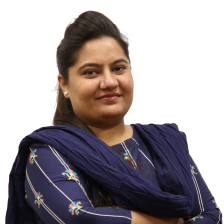
Ms. Aqsa Khurram
Lecturer
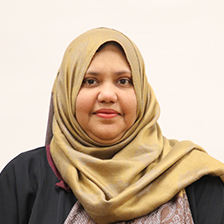
Ms. Hina Furqan
Lecturer
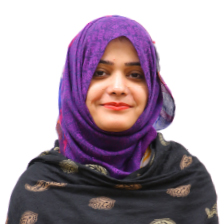
Ms. Tabbassum Jafri
Lecturer
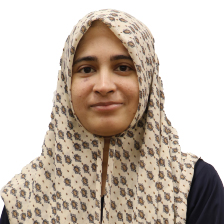
Ms.Memona Fatima
Lecturer
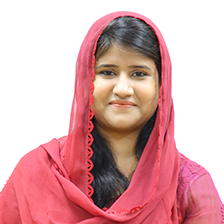
Ms. Shadab Kashif
Lecturer
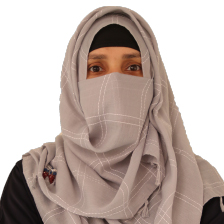
Ms. Sumbal Saeed
Lecturer

Mr. Ali Asgher Shuja
Lecturer
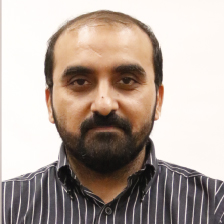
Mr. Muhammad Ali
Lecturer
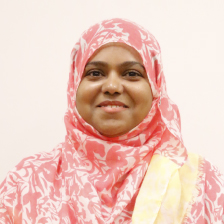
Ms. Farah Ahmed
Lecturer

Ms. Uroosa Kanwal
Lecturer
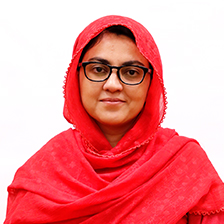
Ms. Asma Rafiq
Lecturer
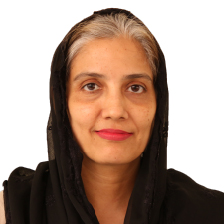
Ms. Nida Umar
Medical Officer cum Lecturer
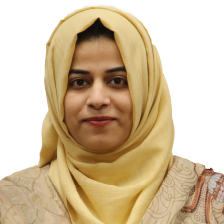
Ms. Rabia Noor
Preceptor cum Lecturer
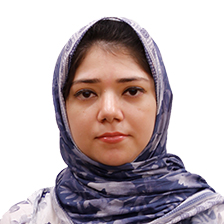
Ms. Kanwal Hussain
Lecturer
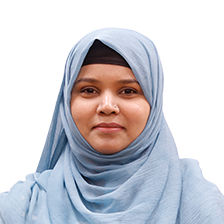
Ms. Sidra Maqbool
Lecturer
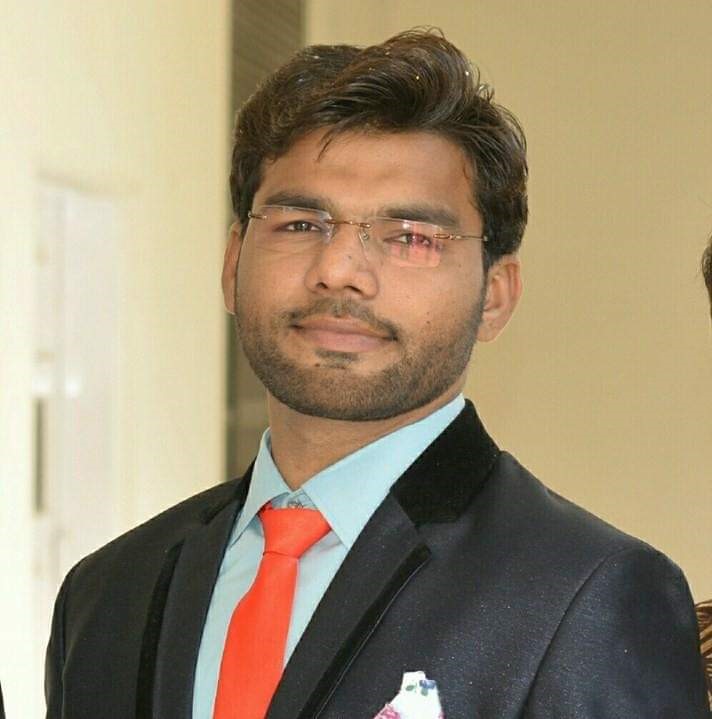
Mehtab Ali
Teaching Assistant
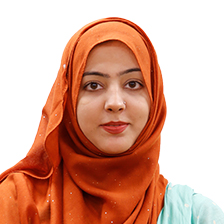
Ms. Nimra
Teaching Assistant
➤ Apply for Admission

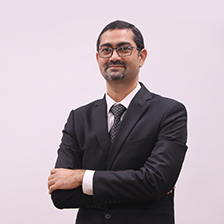


















 Seminar titled Campus to Corporate - Steps to be Readythumb.jpg)